-
‘Match made in heaven’ — Why the US will fail to drive a wedge between Russia, China
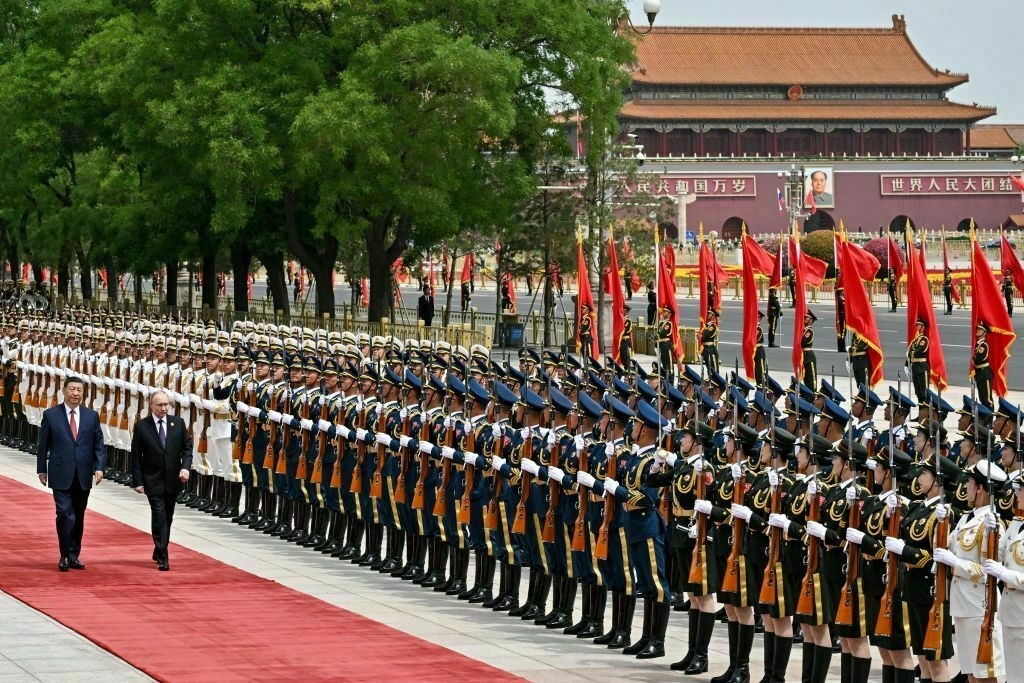
It’s no secret that U.S. officials have been trying to drive a wedge between Russia and its key ally, China.
Former United States Special Envoy for Ukraine and Russia Keith Kellogg was among the government officials who made the intention public, saying that the U.S. would try to “break (Vladimir) Putin’s alliances."
Kellogg was later demoted, with the word Russia removed from his job title.
U.S. State Secretary Marco Rubio echoed Kellogg’s sentiment, saying that having a relationship with Russia would allow Moscow to be less dependent on China. Yet, the state secretary was a bit more realistic in his expectations.
“I don’t know if we’ll ever be successful completely at peeling them off of a relationship with the Chinese,” Rubio told far-right Breitbart News on Feb. 25.
Dubbed the “reverse Kissinger” (or reverse Nixon), experts say the strategy envisions the U.S. playing on tensions between Moscow and Beijing. They also say it’s a fundamentally flawed approach.
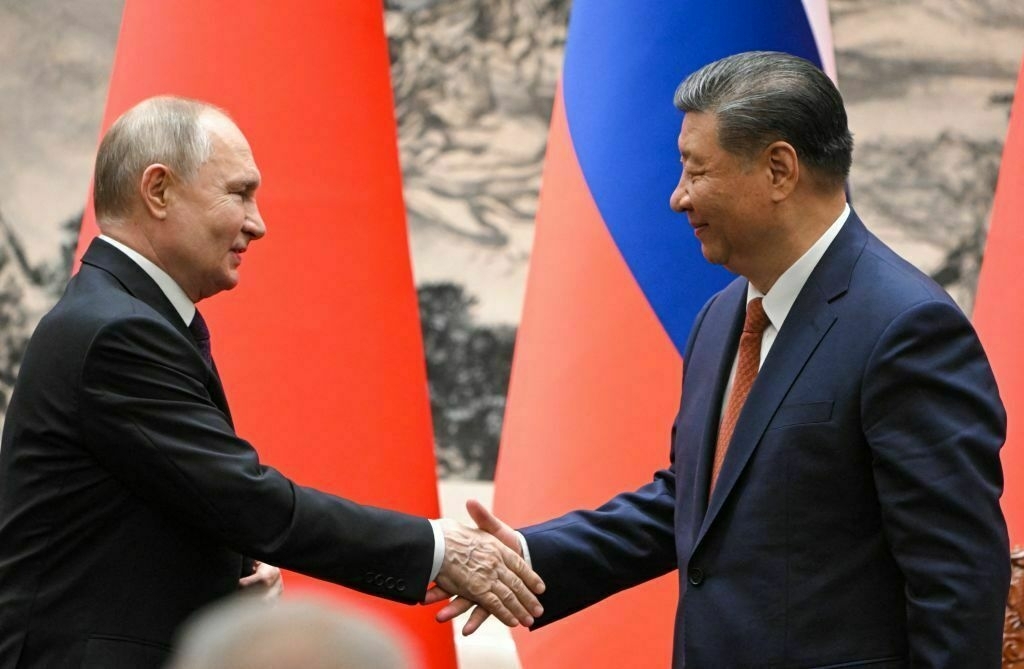
Russia’s President Vladimir Putin and China’s President Xi Jinping shake hands during a signing ceremony following their talks in Beijing on May 16, 2024. (Sergei Guneyev/POOL/AFP via Getty Images) For Russia and China, international law is “built in an unfair way, excluding China, Russia and other countries from decision-making on the international arena,” Temur Umarov, a research fellow at the Berlin-based Carnegie Russia Eurasia Center, told the Kyiv Independent.
“They think this system should be reformed, and they see themselves as alternative centers to Washington."
This relationship is a “match made in heaven,” he added.
‘Conditions for Ukraine’s surrender’ — Why Putin’s demands for ceasefire make no senseRussian President Vladimir Putin’s conditions for a ceasefire are unrealistic and tantamount to demanding that Ukraine disarm itself and surrender, analysts say. Putin said on March 13 that Russia was ready to agree to the U.S.-backed 30-day-long ceasefire in Ukraine but then followed by listing a…The Kyiv IndependentOleg Sukhov
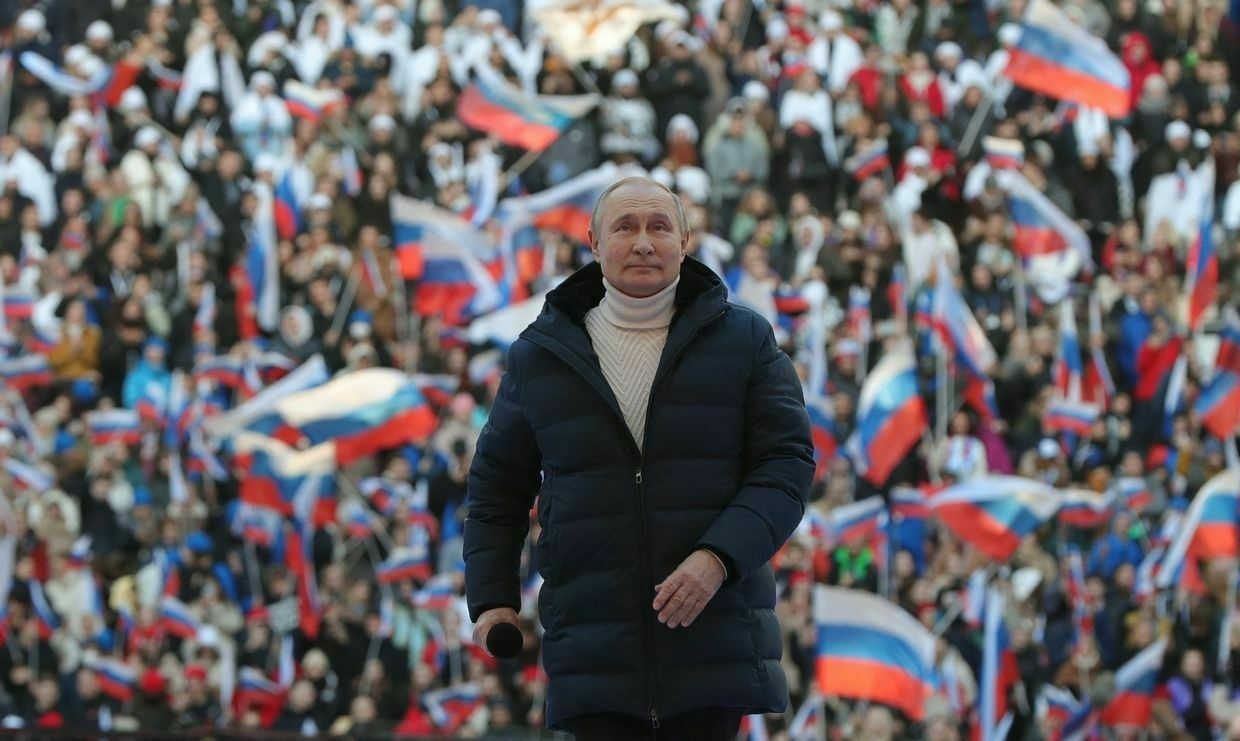
A fundamentally flawed strategyDecades ago, the United States embarked on a charm offensive in an attempt to capitalize on the Sino-Soviet split. Then President Richard Nixon’s photogenic 1972 visit to China featured the U.S. leader exchanging warm smiles with Chinese tyrant Mao Zedong.
This visit was far more than pictures.
Spearheaded by then-State Secretary Henry Kissinger, these contacts helped warm relations between the U.S. and China, leaving the USSR isolated in the face of the new Chinese-American friendship.
Sign up for our newsletterWTF is wrong with Russia?<span data-sanitized-id="wtfr-snippet-info" data-sanitized-class="wtfr-snippet__info"></span> <button data-sanitized-id="wtfr-snippet-subscribe-btn" data-sanitized-class="wtfr-snippet__form-btn"> <span data-sanitized-class="wtfr-snippet__form-label">Sign up</span> </button> </div>Fast forward to 2025, the question asked by experts worldwide is whether Donald Trump is trying to repeat Nixon's 1970s experiment the other way around — pulling a weaker Russia away from a much more powerful China.
The answer to that question, for now, is a flat no.
Five decades ago, the USSR and China were in the middle of a major split, culminating in armed combat across their border on the Amur River. In 2025, Russia and China show no signs of wanting to loosen their friendship.
A 'match made in heaven' with few weak spotsLike any relationship, the Chinese-Russian one is not perfect. One point of divergence, according to Brookings Institution researcher Patricia Kim, who spoke with the Kyiv Independent, is Russia's increasingly warm relations with North Korea.
"(Pyongyang) is providing lethal assistance to Russia in its war against Ukraine in return for military technology assistance, which makes China nervous," Kim explained.
Kim added that Beijing was also interested in acting as an intermediary in negotiations on the war in Ukraine, so direct contacts between Russia and the U.S. make China worried about being sidelined in the process.
Links between Moscow and Beijing are, however, much stronger than any potential disagreements that the two sides could have. Beyond their anti-Western ideologies, Beijing and Moscow are strongly linked to one another through their economies, with Russia exporting oil, gas, and timber in exchange for Chinese manufactured goods.
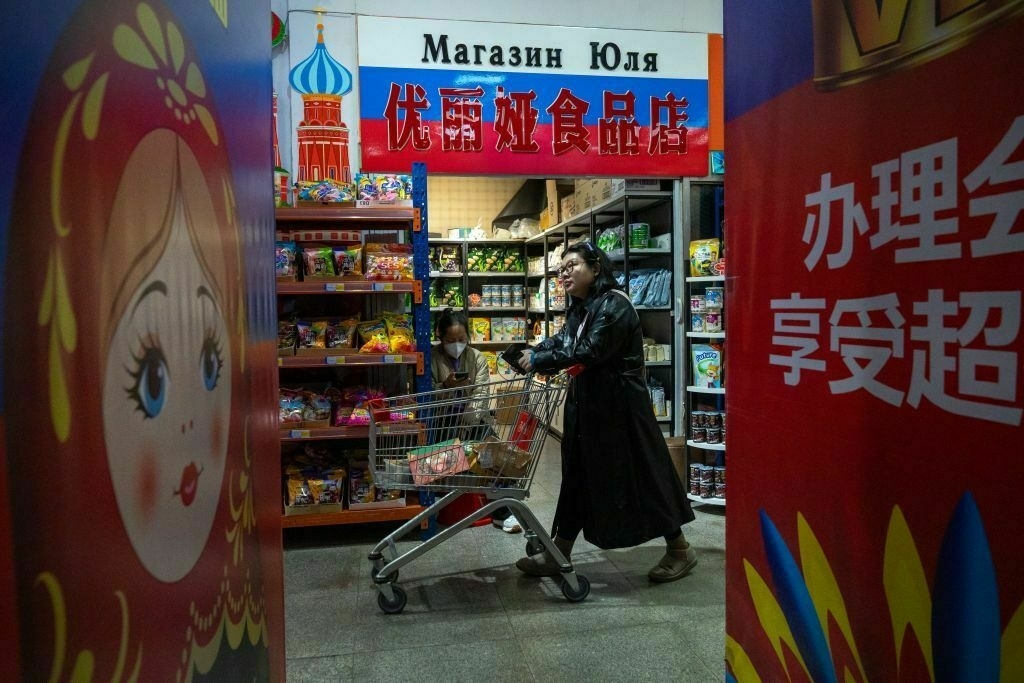
A customer at an Epinduo supermarket in Heihe, Heilongjiang province, China, on Monday, March 20, 2023. (Bloomberg via Getty Images) This interdependency grew especially after the start of Russia's full-scale invasion of Ukraine when the EU introduced sanctions on Russian gas. Three years on, the EU market remains closed, making Beijing one of the few major clients still available.
"China appears satisfied with this arrangement," according to Callum Fraser, a research fellow at the London-based think tank RUSI, who spoke to the Kyiv Independent. "In fact, Beijing can take advantage of Russia's vulnerable position and negotiate discounts on gas," Fraser explained.
As a result, China came to be the dominant player in this economic relationship, buying "as much gas as it needs," according to Fraser, but refusing Moscow's advances to sell more. Chinese leader Xi Jinping, for instance, did not agree to Putin's proposal to build a second leg of the existing Power of Siberia gas pipeline, which links the two countries.
Russian-Chinese cooperation does not end with gas and oil exports.
"China's military industry is based on Soviet-era technologies, and what Russia can provide is something which just fits into China's own military complex," Umarov told the Kyiv Independent.
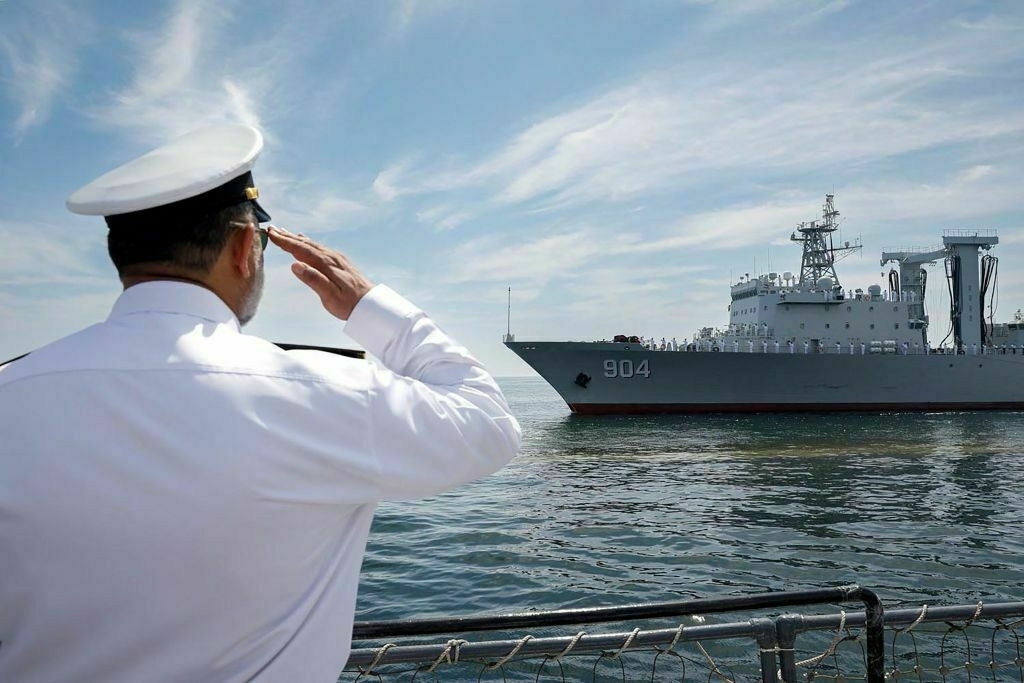
This handout photo made available by the Iranian Army Office on March 12, 2025 shows an unidentified navy officer attending a joint Iranian-Russian-Chinese military drill in the Gulf of Oman. (Iranian Army Office/AFP via Getty Images) Aside from weapons exports, Russia has other technologies inherited from the Soviet Union, such as its nuclear industry. Prior to the full-scale invasion of Ukraine, Russia "didn't really want to share this know-how (with China), but now (Moscow) doesn't really have any other options" due to its international isolation, Umarov explained.
Above the material component, the Russian-Chinese relationship is "driven by Beijing and Moscow's shared antipathy towards a 'Western-dominated' global order," Kim argued in turn.
Putin’s ‘ceasefire’ — Is Russia still attacking Ukraine?Editor’s note: The Kyiv Independent is tracking Russian attacks on civilians, civilian infrastructure, and energy infrastructure from March 19, as it is not clear if strikes launched by Russia overnight on March 18 were launched before or after Putin gave his order to the military to halt attacks.…The Kyiv IndependentChris York
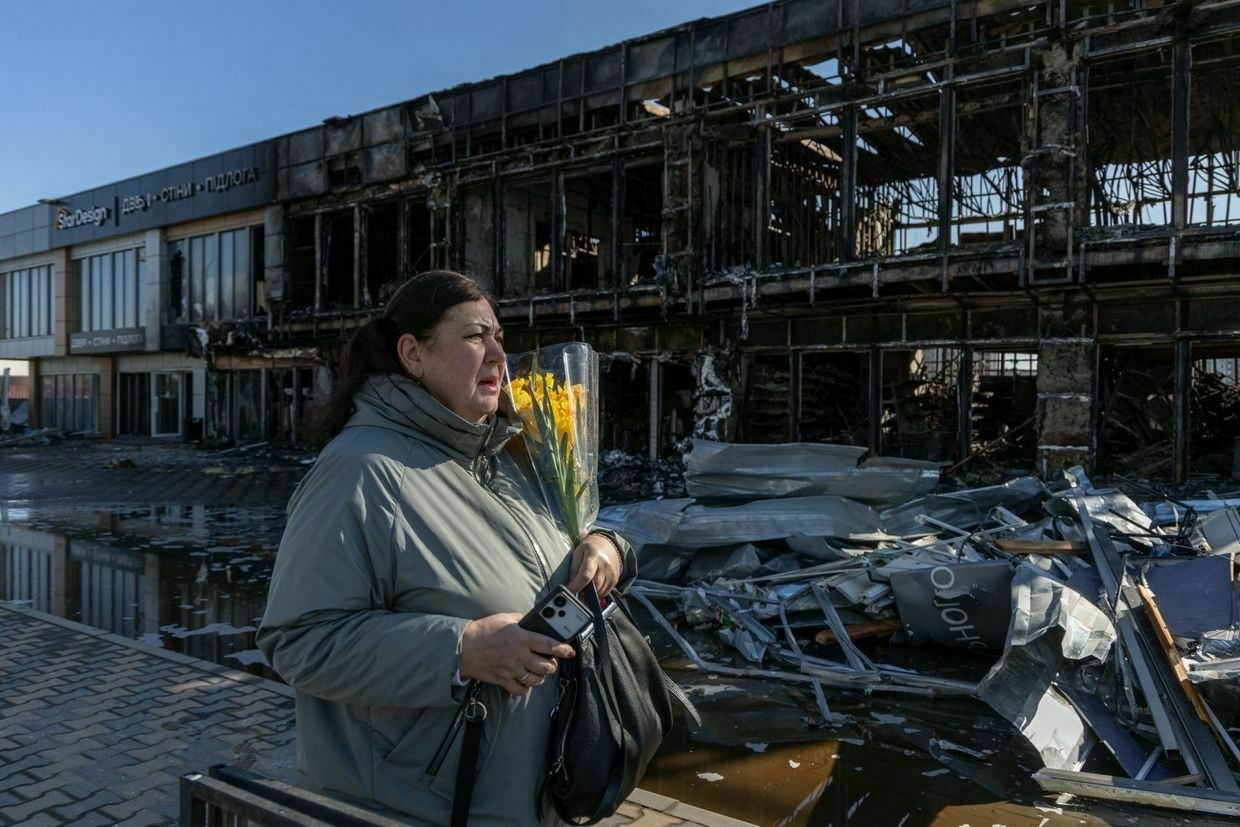
What does Trump want, and can he achieve it?For now, it's "very unclear" what the Trump administration wants to achieve with regards to Russia, Fraser explained to the Kyiv Independent. "Trump wants to get a ceasefire in Ukraine, and he wants to capitalize on the strong relationship which he claims to have with Vladimir Putin, in order to make trade deals."
In any case, any policy to weaken China is well perceived by the new U.S. administration, and warming relations with Russia is just one of the possible steps in this field, Fraser added.
"President Trump clearly sees himself as the ultimate negotiator, and he's made it clear that he wants to strike deals with both Moscow and Beijing," Kim said. "But he has yet to articulate clear views on what precisely he hopes to achieve by talking with both."
The issue with this approach is that China and Russia will not stop perceiving the U.S. as a threat anytime soon, regardless of Trump's views on NATO and American allies in Asia, Kim said. This means that the China-Russia partnership isn't likely to weaken anytime soon, as both sides see too much value in being close to one another.
"Moscow doesn't want to be seen as sacrificing its relationship with China for the sake of being closer to the United States," Umarov said. "For Moscow, this relationship is a strategic interest, and there are many reasons why it's just unimaginable for Russia to turn its back on China."
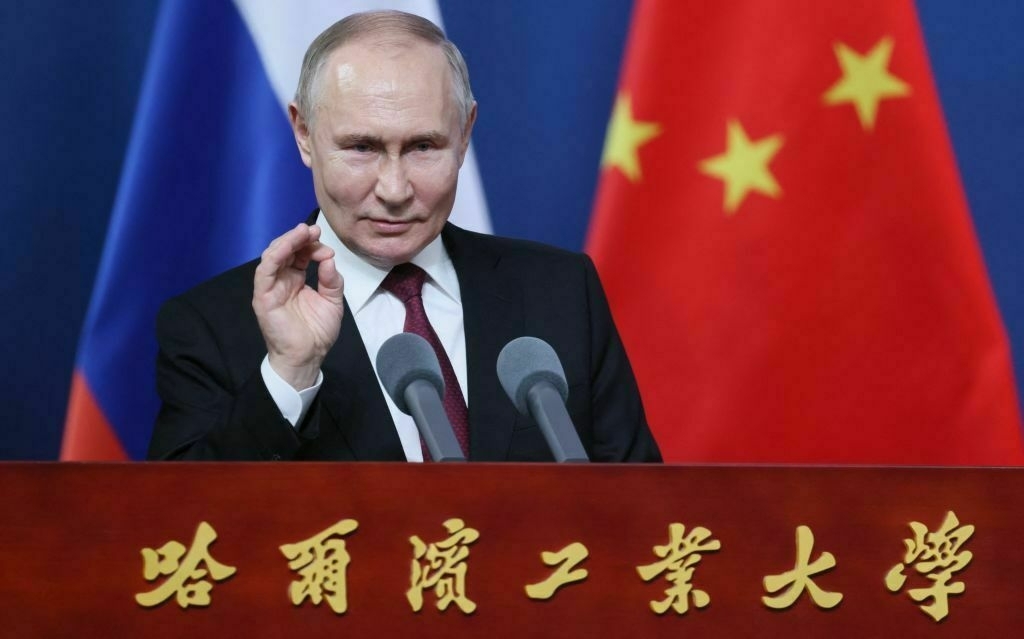
Russia's President Vladimir Putin meets with students at Harbin Institute of Technology in the northeastern city of Harbin on May 17, 2024. (Mikhail Metzel/POOL/AFP via Getty Images) Structural problems in the U.S.-Russia relationship also make it hard to imagine the two countries seriously warming relations. The U.S. simply does not have any strategic, economic, military or political advantages to hand to Russia, at least in comparison with what China can offer, Fraser explained.
One reason for this is that, unlike China, the U.S. does not need Russia's fossil fuel and other raw materials exports, as it can rely on its own reserves.
"None of this is going to disappear just because Donald Trump is posting something which seems to be sympathetic or supportive of Russia's current interests in Ukraine," Umarov argued.
Whatever the war's outcome, the success of an American "reverse Kissinger" strategy is doubtful. "People who are putting these thoughts into policy in the U.S. don't understand the current nature of the relationship between Moscow and Beijing," he added.
Trump wants a ceasefire between Ukraine and Russia – which side would gain more?U.S. President Donald Trump held a phone call with his Russian counterpart Vladimir Putin on March 18 to discuss a U.S.-backed ceasefire proposal. Putin claimed Russia would pause attacks on Ukraine’s energy infrastructure for 30 days, but did not commit to a broader ceasefire. Russia has declinedThe Kyiv IndependentOleg Sukhov
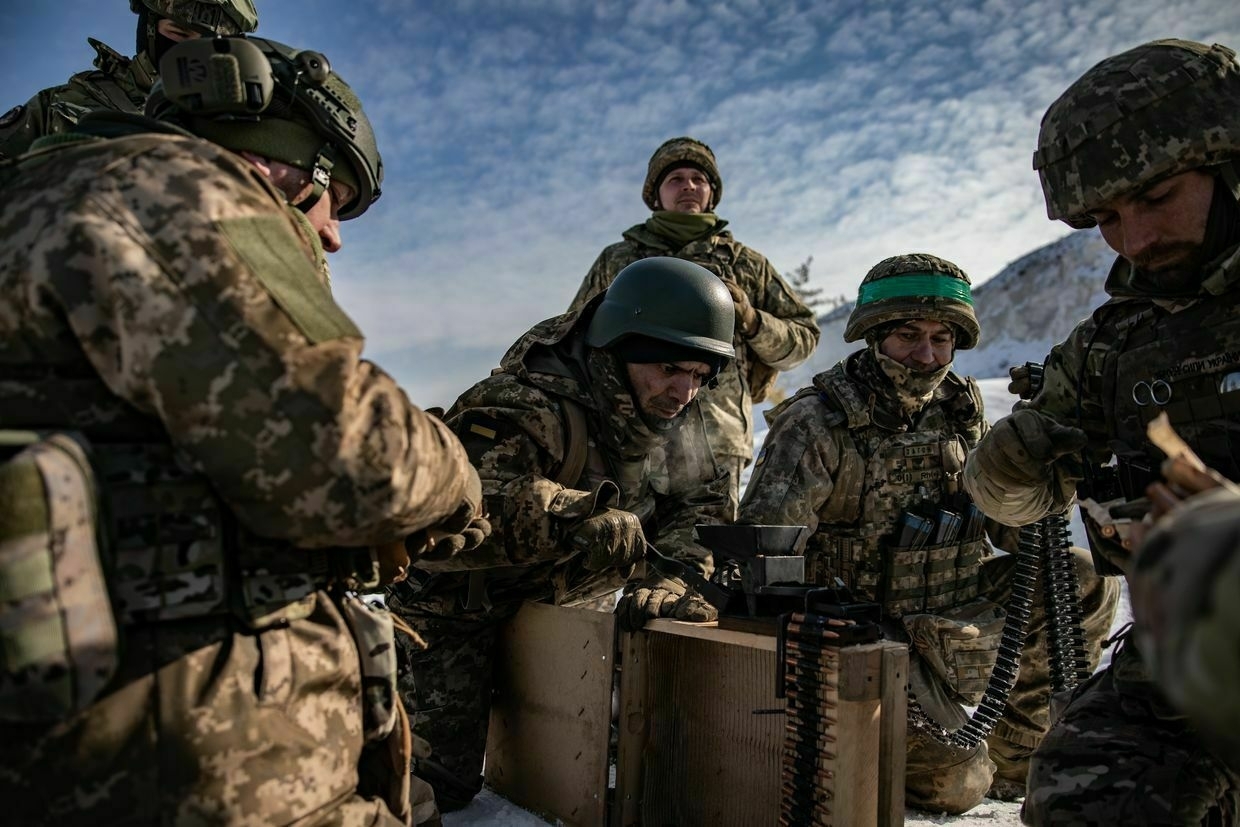
Trump says 'dividing up lands' within negotiations between Russia, Ukraine 'is being negotiated as we speak'
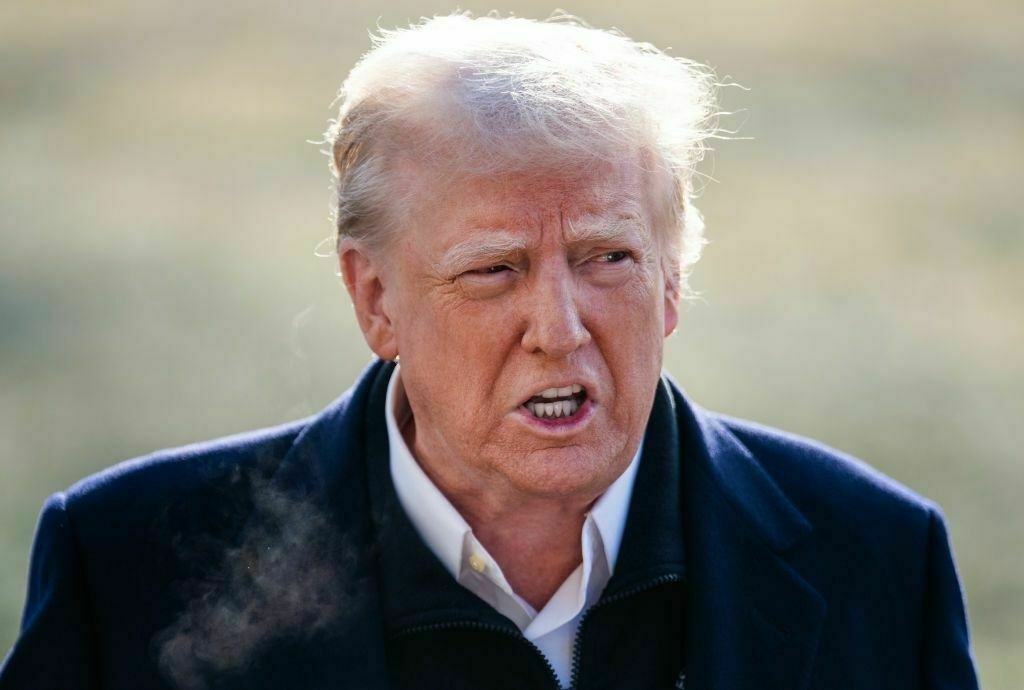
U.S. President Donald Trump said on March 21 that as part of the negotiations to end the war, the parties will have an agreement on territorial division.
Trump’s statement comes ahead of the U.S. separate talks with Russia and Ukraine scheduled for March 24 in Saudi Arabia.
“Pretty soon, we’ll have a full ceasefire, and then we’re going to have a contract,” Trump said during a press briefing, adding that the future deal includes “dividing up the lands."
“It’s being negotiated as we speak,” Trump said without specifying the format of the talks.
During the briefing, Trump also dodged a question about imposing new sanctions on Russia as it continues to attack Ukraine.
“Well, they’re fighting against each other,” Trump said.
Russia occupied and illegally annexed Crimea at the start of its war against Ukraine in 2014. After the outbreak of the full-scale invasion in 2022, Moscow also illegally declared annexation of partially occupied Donetsk, Luhansk, Zaporizhzhia, and Kherson oblasts.
President Volodymyr Zelensky has rejected recognizing Russian occupation of Ukrainian territories in any peace talks, calling it a “red line” that Kyiv will not cross. Ukraine’s Constitution states that the “territory of Ukraine within its present border is indivisible and inviolable."
The Semafor outlet reported earlier this week that the Trump administration is considering recognizing Crimea as part of a peace deal. Washington has not confirmed this claim.
UK discussing deploying fighter jets to Ukraine under potential peace deal, Telegraph reportsThe RAF could reportedly deploy either Typhoon or U.S.-made F-35 fighter jets to conduct air patrols, given their advanced air-to-air capabilities.The Kyiv IndependentTim Zadorozhnyy
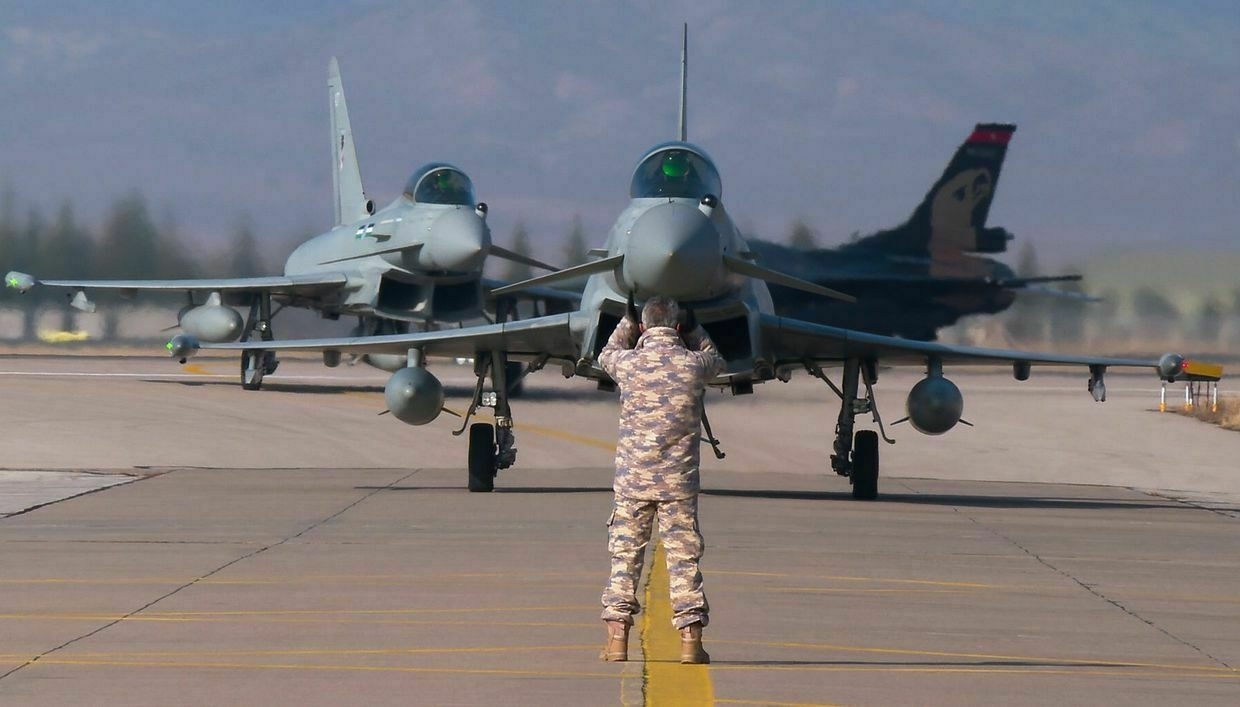
Ukraine won't interact with Russia during talks in Saudi Arabia on March 24, Foreign Ministry says
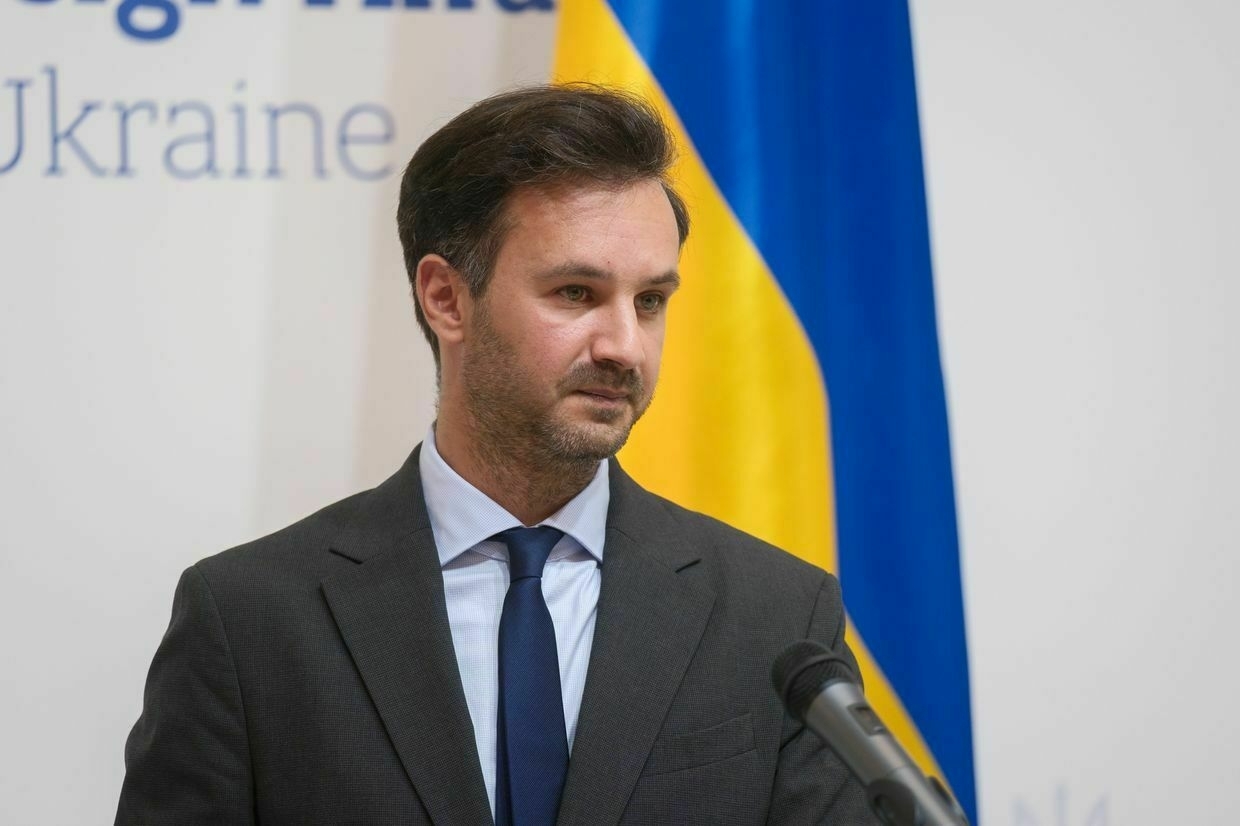
Ukrainian and Russian delegations will not interact directly during the March 24 talks in Saudi Arabia, Foreign Ministry spokesman Heorhii Tykhyi said on March 21 during a press briefing in Kyiv.
Tykhyi’s statement came as Special Envoy for Ukraine Keith Kellogg announced that the U.S. plans to hold indirect talks between Moscow and Kyiv in Saudi Arabia, with Russian and Ukrainian representatives present in separate rooms.
Ukraine does not know what format the U.S. will use to negotiate with Russia in Riyadh, Tykhyi said.
“This is their choice. But we are preparing for the talks in Saudi Arabia as bilateral Ukrainian-American ones,” the spokesperson said.
Ukraine is preparing for a technical but not a political round of negotiations with the U.S., according to Tykhyi.
“There will be a meeting of professional people from the Ukrainian and American sides who can figure out all the details of how (a ceasefire) should look. We need to understand how it will work, who will control it, how it will be monitored,” he said.
Tykhyi added that Foreign Minister Andriy Sybiha will not participate in the next round of talks.
The upcoming Russia-U.S. consultations in Riyadh will include Russian officials Grigory Karasin, chairman of the Federation Council Committee on International Affairs, and Sergei Beseda, an adviser to the director of Russia’s Federal Security Service (FSB).
The Ukrainian representatives have not yet been officially announced.
Ukrainian and U.S. delegations last met in Saudi Arabia on March 11, where Ukraine agreed to a U.S. proposal for a complete ceasefire. Russia did not agree to a complete ceasefire, and Russian missile and drone attacks against Ukraine have continued.
Trump wants a ceasefire between Ukraine and Russia – which side would gain more?U.S. President Donald Trump held a phone call with his Russian counterpart Vladimir Putin on March 18 to discuss a U.S.-backed ceasefire proposal. Putin claimed Russia would pause attacks on Ukraine’s energy infrastructure for 30 days, but did not commit to a broader ceasefire. Russia has declinedThe Kyiv IndependentOleg Sukhov
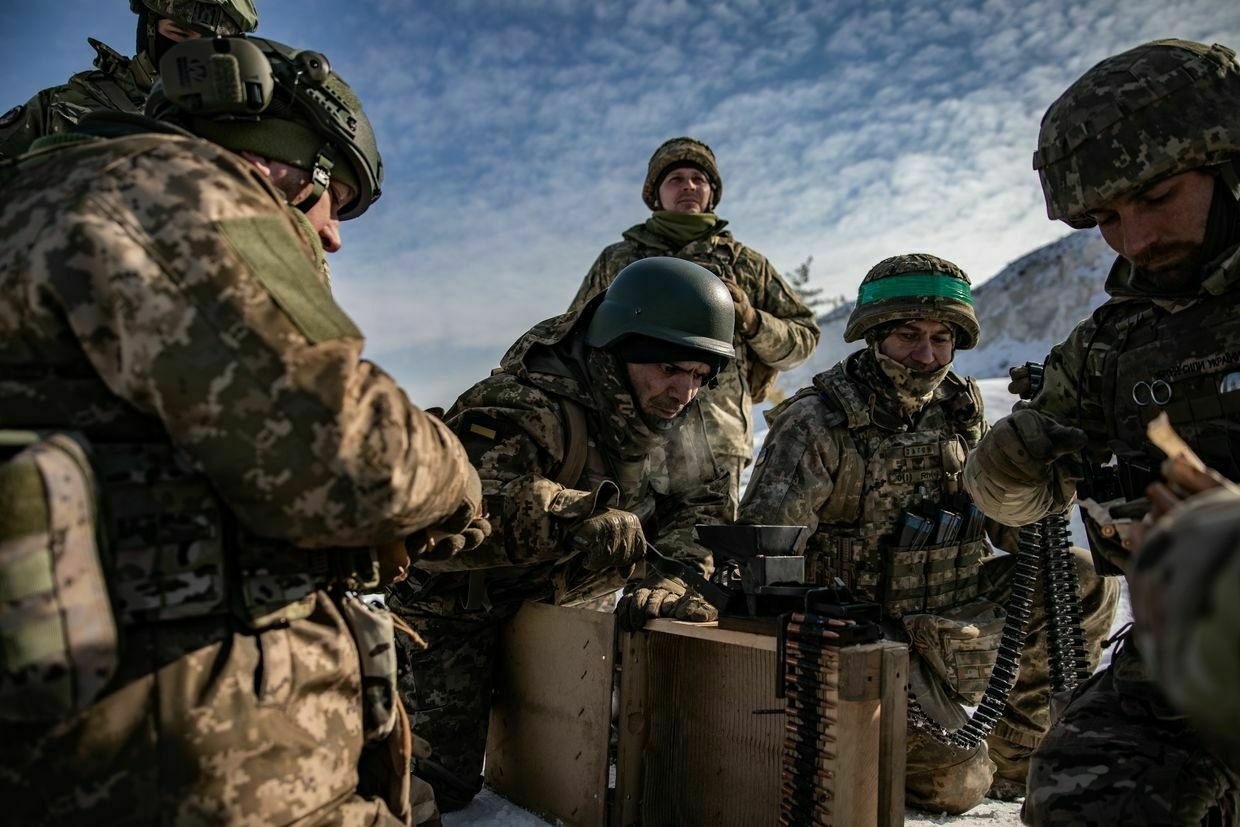
2 Russian officers allegedly killed in car bombing in occupied Skadovsk
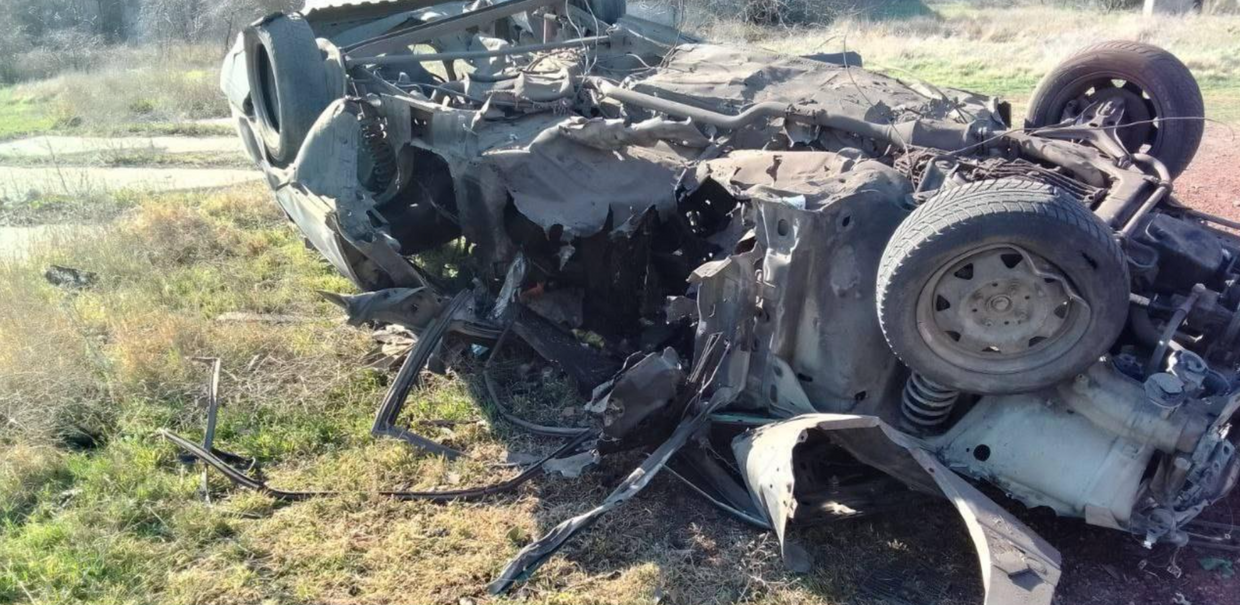
A car with two Russian officers exploded on March 20 in the Russian-occupied town of Skadovsk in Kherson Oblast, Ukrainian military intelligence (HUR) said on March 21.
Skadovsk, a city with a pre-war population of 17,000, lies on the Black Sea coast. Russia has occupied it since March 2022.
According to the statement, the explosion occurred at 8:40 p.m. local time on Myr Street. “A pile of warped metal remained” from the Nissan car, which reportedly carried two Russian officers, HUR said.
The Kyiv Independent could not immediately verify the claims.
Russia declared annexation of partially occupied Kherson, Zaporizhzhia, Luhansk, and Donetsk oblasts in September 2022, a step denounced by Ukraine and the international community as illegal and void.
Russian officials, their proxies, and collaborators have been routinely targeted in both occupied parts of Ukraine and inside Russia. Kyiv does not typically comment on the attacks or claim responsibility.
Trump wants a ceasefire between Ukraine and Russia – which side would gain more?U.S. President Donald Trump held a phone call with his Russian counterpart Vladimir Putin on March 18 to discuss a U.S.-backed ceasefire proposal. Putin claimed Russia would pause attacks on Ukraine’s energy infrastructure for 30 days, but did not commit to a broader ceasefire. Russia has declinedThe Kyiv IndependentOleg Sukhov
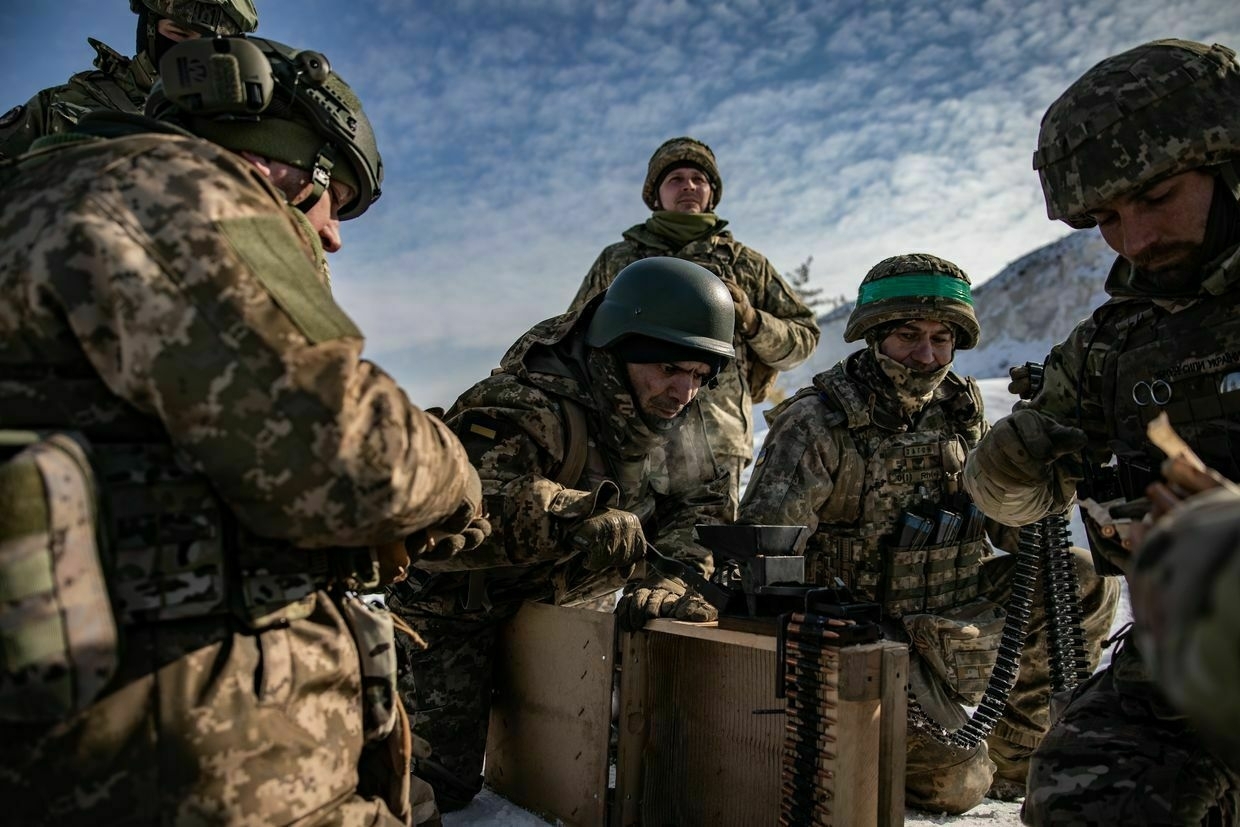
Belarus Weekly: Lukashenko signs security treaty, pulling Belarus further into Russia’s orbit
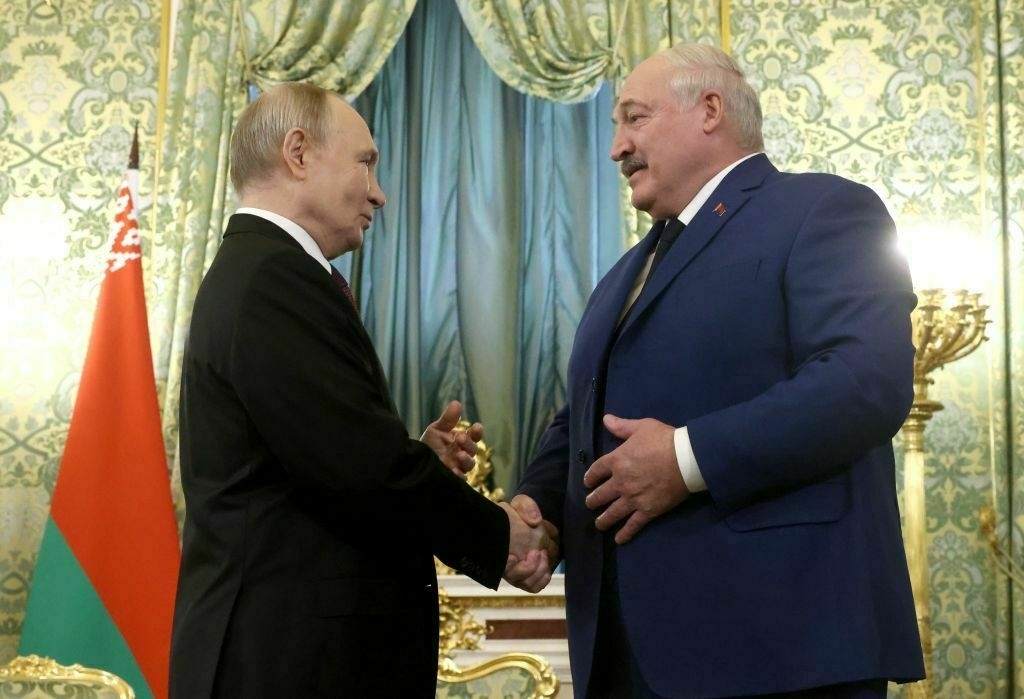
Belarus dictator Alexander Lukashenko visits Moscow, enacting a security treaty and signing a range of agreements that pull Belarus further into Russia’s orbit.
U.S. President Donald Trump slashes RFE/RL funding in another blow to Belarusian media in exile.
Latvia restricts movement at last open border crossing with Belarus amid migration
concerns.Japanese citizen sentenced to seven years in Belarus on trumped up charges of spying.
Poland and the Baltic states seek to withdraw from the anti-personnel mine ban treaty.
Subscribe to the NewsletterBelarus Weekly<span data-sanitized-id="belarus-weekly-info" data-sanitized-class="belarusWeekly__info"></span> <button data-sanitized-id="belarus-weekly-subscribe-btn" data-sanitized-class="belarusWeekly__form_button"> <span data-sanitized-class="belarusWeekly__form_label">Join us</span> <path d="M4.45953 12.8114H7.90953C8.00052 12.8127 8.09085 12.7958 8.17517 12.7616C8.25949 12.7274 8.3361 12.6766 8.40044 12.6123C8.46478 12.548 8.51556 12.4714 8.54975 12.387C8.58395 12.3027 8.60088 12.2124 8.59953 12.1214C8.58173 11.9269 8.48974 11.7467 8.34265 11.6183C8.19555 11.4898 8.00465 11.4229 7.80953 11.4314H4.45953C4.27653 11.4314 4.10103 11.5041 3.97163 11.6335C3.84223 11.7629 3.76953 11.9384 3.76953 12.1214C3.76953 12.3044 3.84223 12.4799 3.97163 12.6093C4.10103 12.7387 4.27653 12.8114 4.45953 12.8114Z" fill="white"></path> <path d="M8.6 15.0114C8.60135 14.9204 8.58442 14.83 8.55022 14.7457C8.51603 14.6614 8.46525 14.5848 8.40091 14.5205C8.33656 14.4561 8.25996 14.4053 8.17564 14.3711C8.09131 14.3369 8.00098 14.32 7.91 14.3214H2.69C2.507 14.3214 2.3315 14.3941 2.2021 14.5235C2.0727 14.6529 2 14.8284 2 15.0114C2 15.1944 2.0727 15.3699 2.2021 15.4993C2.3315 15.6287 2.507 15.7014 2.69 15.7014H7.81C8.00511 15.7099 8.19602 15.643 8.34311 15.5145C8.49021 15.386 8.5822 15.2058 8.6 15.0114Z" fill="white"></path> <path d="M24.4202 6.01122H7.55022C7.43403 5.99626 7.31641 5.99626 7.20022 6.01122L7.08022 6.06122C6.85578 6.16602 6.66595 6.33276 6.53308 6.54181C6.4002 6.75086 6.32982 6.99352 6.33022 7.24122C6.32744 7.43266 6.36832 7.62222 6.44976 7.79549C6.5312 7.96876 6.65105 8.1212 6.80022 8.24122L12.5802 13.4512L6.89022 18.7112C6.71923 18.8375 6.57973 19.0016 6.4826 19.1907C6.38546 19.3797 6.33331 19.5887 6.33022 19.8012C6.32652 20.0535 6.3952 20.3015 6.52812 20.516C6.66105 20.7304 6.85264 20.9023 7.08022 21.0112C7.14691 21.0484 7.21729 21.0786 7.29022 21.1012C7.46476 21.1609 7.64625 21.1979 7.83022 21.2112H24.5102C24.8263 21.2048 25.1378 21.1355 25.4268 21.0074C25.7158 20.8792 25.9763 20.6948 26.1932 20.4648C26.4101 20.2349 26.579 19.9641 26.6901 19.6681C26.8012 19.3722 26.8522 19.0571 26.8402 18.7412V8.47122C26.8278 7.82952 26.5701 7.21694 26.12 6.7594C25.6699 6.30185 25.0616 6.03412 24.4202 6.01122ZM8.57022 8.08122L7.92022 7.49122H24.4202L16.4902 14.6812C16.407 14.7305 16.312 14.7565 16.2152 14.7565C16.1185 14.7565 16.0235 14.7305 15.9402 14.6812L8.57022 8.08122ZM7.73022 19.7912L8.48022 19.1112L13.4802 14.5812L14.8802 15.8612C15.1804 16.157 15.5793 16.3315 16.0002 16.3512C16.4212 16.3315 16.82 16.157 17.1202 15.8612L18.5202 14.5812L24.2002 19.8012H7.73022V19.7912ZM25.3502 18.7112L19.6602 13.5912L25.3502 8.37122V18.7112Z" fill="white"></path> </button> </div>Lukashenko, Putin meet in Moscow, enact Union State security treatyBelarusian dictator Alexander Lukashenko made a three-day state visit to Moscow that ended on March 15 – his first official visit abroad following his so-called "re-election” in January. The visit also occurred before the Belarusian autocrat was officially inaugurated as the country’s head of state.
Following talks, Lukashenko and Russian President Vladimir Putin enacted the Union State treaty, which the sides have dubbed as “security guarantees.” Signed on Dec. 6, 2024, and ratified in late February, the treaty expands Russia’s military presence in Belarus in exchange for the Kremlin opening its “nuclear umbrella” over Belarus.
The treaty is widely seen as ceding Belarus’s sovereignty over its defense and foreign policy. Since using Moscow’s support to crush mass protests triggered by election fraud in 2020, Lukashenko has been largely cut off from the West, and has increasingly relied on Moscow to keep him in power and to support Belarus’s sanctioned economy.
Now, deeply dependent on Russia, Belarus is providing logistical and military support for Moscow’s war against Ukraine. At least 287 Belarusian enterprises supply the Russian war machine, according to Belarusian democratic leader in exile Sviatlana Tsikhanouskaya.
Addressing the Russian Federation Council, Lukashenko said there had been an erosion of Belarusian sovereignty, adding that Belarus would not formally merge with Russia in the near future.
“If we were to burst through this open door, we would ruin everything we have done. It is necessary to go calmly, step by step,” Lukashenko said.
Following his speech, Moscow approved an agreement to delay Belarus’s repayment of nearly $800 million in debts. Belarus’s total debts to Russia stand at $8 billion.
RFE/RL journalist and political analyst Yury Drakakhrust described the highly controlled yet officially still independent Belarus as an example of the Kremlin’s desired model for relations with post-Soviet countries — including Ukraine.
The Russian and Belarusian dictators also signed an agreement granting rights to Russian and Belarusian citizens permanently residing in each other’s territories to vote in local elections, further deepening the integration processes between the two states.
Another agreement signed during Lukashenko’s visit was dedicated to the mutual protection of citizens “unjustly persecuted by foreign states or international justice bodies.” The document contains a pledge “to jointly combat the negative trend of the politicization of international legal cooperation in criminal matters.”
The International Criminal Court (ICC) issued arrest warrants for Putin and Russian human rights ombudswoman Maria Lvova-Belova in March 2023 over their involvement in the forced deportation of Ukrainian children from Russia-occupied territories in Ukraine. The threat of an ICC warrant is also hanging over Lukashenko after Lithuania referred a case against him to the court in September 2024. Human rights groups such as Reporters Without Borders and the International Accountability Platform for Belarus have also submitted evidence on the regime’s alleged crimes.
Like Russia, Belarus has abused Interpol’s Red Notice mechanism, using it to hunt down the regime’s political opponents abroad.
Polish right takes hard line on Ukraine ahead of presidential voteWith the Polish presidential elections just two months away, two of the country’s leading right-wing candidates have become increasingly antagonistic toward Ukraine and its leadership. Kyiv can ill afford another hostile head of state among its key partners, as U.S. President Donald Trump’s foreign…The Kyiv IndependentMartin Fornusek
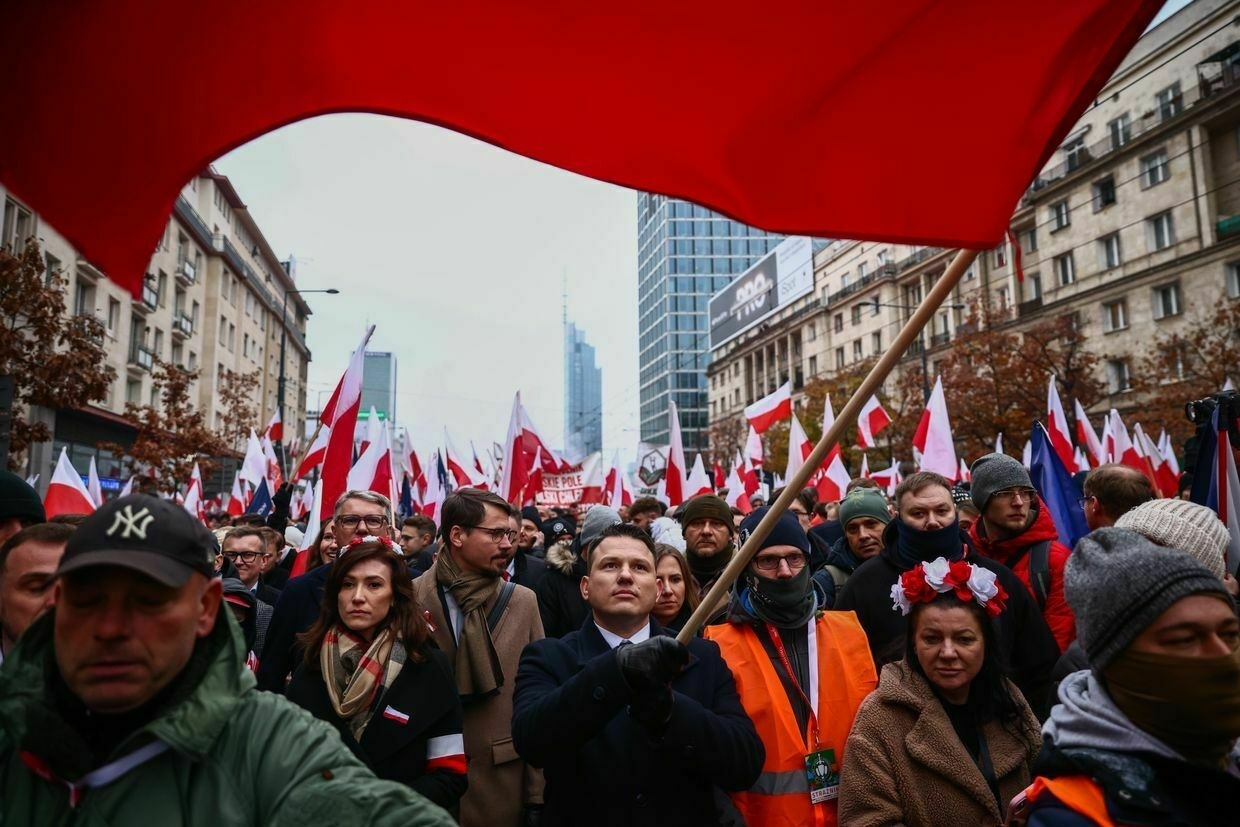
Trump’s defunding of RFE/RL deals another blow to Belarusian media in exileBelarusian dictator Alexander Lukashenko made a three-day state visit to Moscow that ended on March 15 – his first official visit abroad following his so-called "re-election” in January. The visit also occurred before the Belarusian autocrat was officially inaugurated as the country’s head of state.
Following talks, Lukashenko and Russian President Vladimir Putin enacted the Union State treaty, which the sides have dubbed as “security guarantees.” Signed on Dec. 6, 2024, and ratified in late February, the treaty expands Russia’s military presence in Belarus in exchange for the Kremlin opening its “nuclear umbrella” over Belarus.
The treaty is widely seen as ceding Belarus’s sovereignty over its defense and foreign policy. Since using Moscow’s support to crush mass protests triggered by election fraud in 2020, Lukashenko has been largely cut off from the West, and has increasingly relied on Moscow to keep him in power and to support Belarus’s sanctioned economy.
Now, deeply dependent on Russia, Belarus is providing logistical and military support for Moscow’s war against Ukraine. At least 287 Belarusian enterprises supply the Russian war machine, according to Belarusian democratic leader in exile Sviatlana Tsikhanouskaya.
Addressing the Russian Federation Council, Lukashenko said there had been an erosion of Belarusian sovereignty, adding that Belarus would not formally merge with Russia in the near future.
“If we were to burst through this open door, we would ruin everything we have done. It is necessary to go calmly, step by step,” Lukashenko said.
Following his speech, Moscow approved an agreement to delay Belarus’s repayment of nearly $800 million in debts. Belarus’s total debts to Russia stand at $8 billion.
RFE/RL journalist and political analyst Yury Drakakhrust described the highly controlled yet officially still independent Belarus as an example of the Kremlin’s desired model for relations with post-Soviet countries — including Ukraine.
The Russian and Belarusian dictators also signed an agreement granting rights to Russian and Belarusian citizens permanently residing in each other’s territories to vote in local elections, further deepening the integration processes between the two states.
Another agreement signed during Lukashenko’s visit was dedicated to the mutual protection of citizens “unjustly persecuted by foreign states or international justice bodies.” The document contains a pledge “to jointly combat the negative trend of the politicization of international legal cooperation in criminal matters.”
The International Criminal Court (ICC) issued arrest warrants for Putin and Russian human rights ombudswoman Maria Lvova-Belova in March 2023 over their involvement in the forced deportation of Ukrainian children from Russia-occupied territories in Ukraine. The threat of an ICC warrant is also hanging over Lukashenko after Lithuania referred a case against him to the court in September 2024. Human rights groups such as Reporters Without Borders and the International Accountability Platform for Belarus have also submitted evidence on the regime’s alleged crimes.
Like Russia, Belarus has abused Interpol’s Red Notice mechanism, using it to hunt down the regime’s political opponents abroad.
Trump’s defunding of RFE/RL deals another blow to Belarusian media in exileSeventy years of U.S.-backed broadcasts promoting democracy worldwide may come to an end after U.S. President Donald Trump on March 14 signed an executive order eliminating seven federal agencies, including the U.S. Agency for Global Media (USAGM), which oversees RFE/RL and Voice of America (VoA).
For Belarus media in exile, the order serves another major blow to the independent press, which have been outlawed in Belarus and forced into exile. An earlier USAID funding cut in January affected around two-thirds of Belarusian outlets, with about 20% pushed to the brink of closure, according to the independent Belarusian Association of Journalists (BAJ).
Trump’s executive order put 1,300 VoA employees on administrative leave and terminated the U.S. Congress-authorized grant for RFE/RL. In response, on March 19, RFE/RL filed a lawsuit against USAGM and its officials to block the funding halt. So far, the Belarusian service of RFE/RL continues to operate, although some freelancers have been let go.
RFE/RL President and CEO Stephen Capus said that canceling the organization’s funding “would be a massive gift to America’s enemies.” Propagandists in Russia, meanwhile, celebrated the decision.
RFE/RL launched its coverage in Belarusian in 1954. Unlike in Ukraine or Russia, the Belarusian service of RFE/RL was never permitted to open an official bureau in Belarus and was never granted FM broadcasting rights. In December 2021, the regime of Belarusian dictator Alexander Lukashenko officially deemed the Belarusian service to be an “extremist organization.”
The independent journalism fostered at the Belarusian service of RFE/RL kickstarted the development of the media industry in Belarus — the service’s first correspondent on the territory of the then Soviet Belarus, Ales Lipai, later founded the first independent Belarusian news agency, BelaPAN.
Beyond being among the few Belarusian-language media, Radio Liberty is the last outlet preserving pre-Soviet spelling and grammar norms, which were later altered to make written Belarusian more similar to Russian. The shutdown of Belarusian Radio Liberty would eliminate this norm from public use.
Belarusian opposition leader Sviatlana Tsikhanouskaya said losing RFE/RL and VoA would be a “grave mistake,” calling them “symbols of the free world.”
Former RFE/RL journalists Ihar Karnei and Ihar Losik remain behind bars in Belarus, serving sentences of more than three and 15 years, respectively. Another Belarusian correspondent, Andrei Kuznechyk, was recently freed in a U.S.-brokered prisoner release. Belarusian propaganda aired interviews with the prisoners in an attempt to undermine Radio Liberty’s coverage of the 2020 anti-government protests in Belarus.
Since strangling popular protests against the rigged 2020 presidential elections, the Lukashenko regime has raided and shut down independent outlets, blocked websites, and jailed 41 journalists and media workers. Thirty-three media workers have been labeled extremists, and 12 have been declared to be “terrorists.” Donating to or advertising with one of the 38 banned media is punishable by up to five years in prison.
About 400 media workers have fled Belarus, relying on foreign grants to keep their newsrooms operating in exile.
EU foreign policy chief Kaja Kallas said EU foreign ministers discussed the functioning of RFE/RL at a meeting in Brussels on March 17. The bloc cannot automatically fund Radio Free Europe, she said, adding that the EU will look into potential options.
Ten European countries backed the proposal to fund RFE/RL, Czech Minister for European Affairs Martin Dvorak announced on March 18. Czech Foreign Minister Jan Lipavsky did not rule out that the European Union might buy Radio Free Europe from the United States.
EU approves over $2 billion in economic support for MoldovaThe Reform and Growth Facility, which includes 1.5 billion euros ($1.6 billion) in low-interest loans and 385 million euros ($420 million) in grants, will cover the period of 2025-2027 and is part of the EU’s long-term Moldova Growth Plan.The Kyiv IndependentMartin Fornusek
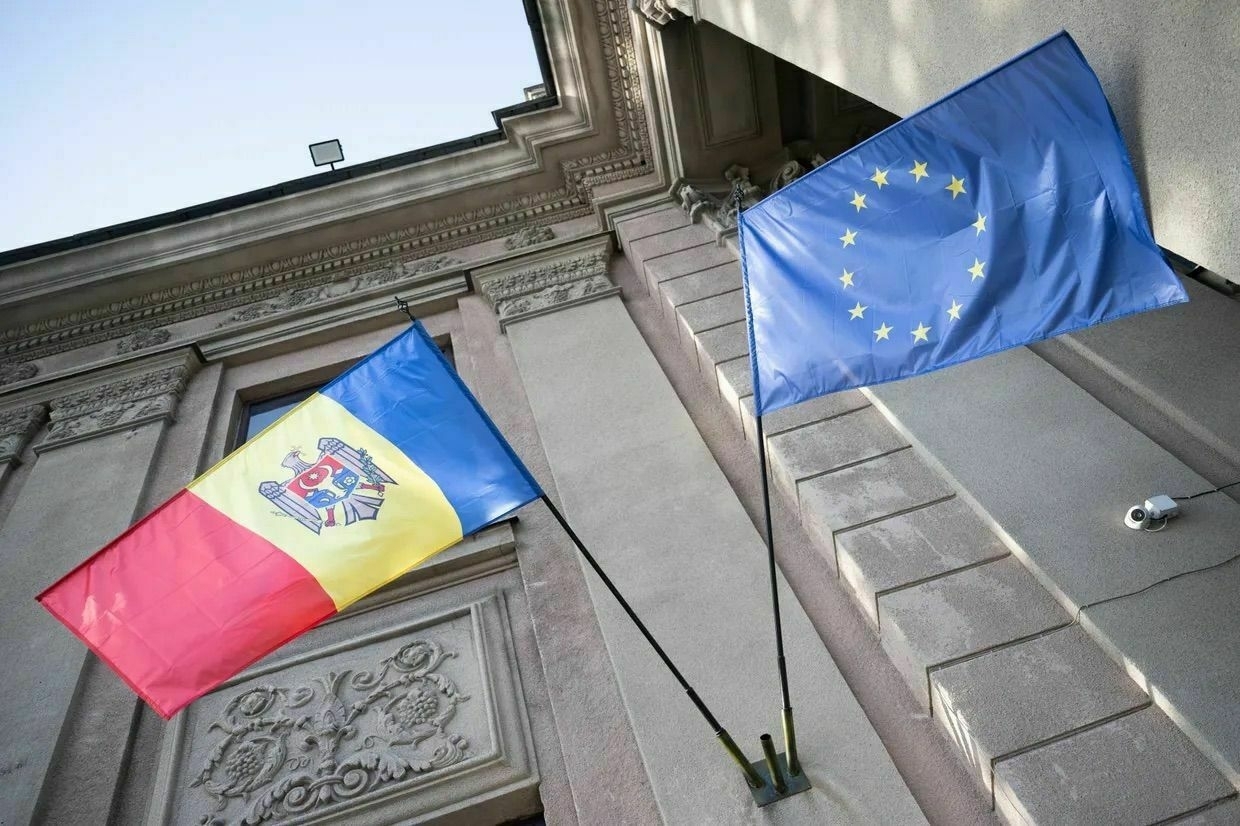
Latvia restricts movement on sole remaining border crossing with BelarusThe Latvian government, seeking to prevent the inflow of illegal migrants into the country from Belarus, on March 19 limited traffic across the country's only remaining border crossing with Belarus for motorized vehicles.
Similar measures extend to the two checkpoints on the Latvian-Russian border.
Belarus orchestrated an artificial migration crisis in 2021 by channeling flows of nearly 8,000 irregular migrants from the Middle East, Africa, and Asia to Belarus's borders with the EU. The crisis was reignited with the Kremlin's backing in 2022, prompting Poland and the Baltic states to declare it a "hybrid attack" aimed at destabilizing the region.
Latvia's decision prohibits pedestrians and bicycles from crossing the border at Patarnieki-Hryharouschyna, the last operating border post between Latvia and Belarus, for six months. According to Border Guard Chief Guntis Puyats, the possibility of a full shutdown is not ruled out if the irregular migration flow again becomes critical.
The Latvian State Border Guard requested that the government approve the partial closure on March 17, following a nine-hour halt of operations at the checkpoint due to the threat of irregular migration.
According to Puyats, border officers decided to block all traffic movement on the border after they noticed about 30 migrants, predominantly men aged between 20 and 35, with no visas or residence permits, who were seeking to cross the border.
"We understand that this is an instrumentalization of migration," the border guard chief said on air on Latvian TV3.
The Belarusian State Border Committee said that the temporary traffic block had been caused by "a group of Africans traveling to the European Union with valid documents," without specifying whether the foreigners actually had visas to enter the EU.
Latvia's State Border Guard has stopped 254 illegal border crossing attempts from Belarusian territory since the beginning of 2025. In 2024, according to border guards data aggregated by the independent news outlet Pozirk, there were around 30,000 border crossing attempts — 14% less than in 2023 — with 85% of the attempts occurring on the Polish-Belarusian border. Since the onset of the artificial migration crisis, Lithuania, Latvia, and Poland have built physical barriers along their land borders with Belarus and shut down several border crossings.
The Latvian government is actively discouraging its citizens from traveling to Belarus. Two proposals were submitted to parliament in February to prohibit travel companies from organizing trips to Russia and Belarus and to ban passenger transportation with each of the two countries.
Japanese citizen sentenced to 7 years on politically motivated charges in BelarusAfter subjecting Japanese citizen Masatoshi Nakanishi to trial on alleged “undercover activities,” a Belarusian court sentenced him to seven years of imprisonment, the maximum term for the offense, the Belarusian Prosecutor General’s Press Office reported on March 17.
A key Russian ally, Belarus has intensified the persecution of foreign nationals since the beginning of the full-scale Russian invasion of Ukraine, according to the Viasna Human Rights Center. At least 19 foreigners have been tried and sentenced in Belarus for “undercover activities” — a vaguely defined act of “cooperation” with a wide range of foreign or international entities.
The court convicted Nakanishi for allegedly taking over 9,000 photos of civilian and military infrastructure, including military and railway facilities. Belarusian authorities also claimed Nakanishi traveled to the Ukrainian border. The court imposed the maximum possible prison sentence and a fine of around $6,500.
According to a documentary aired on Belarusian state-run TV, Nakanishi lives in Homiel, a regional center near Belarus’s border with Ukraine, and was officially employed as a Japanese language instructor at the local university. The first news of his arrest was published in September 2024, although he was actually arrested in July 2024.
Jailed foreign nationals are often used as bargaining chips by the regime of Belarusian dictator Alexander Lukashenko. In August 2024, Belarus released a German citizen, Rico Krieger, who had been subjected to a swift trial and sentenced to capital punishment on charges including “undercover activities.” Lukashenko “pardoned” Krieger and released him as part of a historic East-West prisoner swap in August 2024, assisting Moscow in returning the Russian killer Vadim Krasikov from prison in Germany.
In 2022, Swiss-Belarusian dual national Natallia Hersche was released after a year-and-a-half in a Belarusian prison following “intense efforts” by Switzerland’s Federal Department of Foreign Affairs. Swiss newspaper Der Bund linked the appointment of a Swiss ambassador to Belarus in February 2022 to the freeing of Hersche.
Belarus still holds around 1,200 political prisoners, at least 36 of them foreigners, under a range of politically motivated charges.
Estonian citizen Alan Royo was prosecuted for slandering Lukashenko and founding an extremist formation, while Latvian citizen Jurijs Ganins was charged on March 13 with discrediting Belarus, calling for sanctions, and insulting Lukashenko.
Poland, Baltics to withdraw from anti-personnel mine treatyThe defense ministers of Estonia, Latvia, Lithuania, and Poland, the EU member states bordering Belarus and Russia, have unanimously recommended that their countries withdraw from the Ottawa Convention banning the use of anti-personnel mines.
The ministers reasoned that Russia’s aggression against Ukraine and its ongoing threats to the Euro-Atlantic community had fundamentally changed the security situation in the region since the ratification of the Ottawa Convention.
“With this decision, we are sending a clear message: our countries are prepared and can use every necessary measure to defend our territory and freedom,” reads a statement published by Poland’s Ministry of National Defense.
Despite withdrawing from the convention, the countries say they would uphold their commitments to international humanitarian law, including protecting civilians during armed conflict.
The decision still requires approval by the countries’ parliaments.
While all EU member states have ratified the treaty, Russia and the United States have not. Neither was Russia a signatory of the convention banning cluster munitions, a weapon widely used in the Russia-Ukraine war. Lithuania voted to withdraw from the convention banning the use of cluster munitions earlier in March.
The move to withdraw from the anti-personnel mine ban treaty signals a shift in the front-line NATO states’ defense policies in the wake of Russia’s aggression against Ukraine. Both the Kremlin and Belarusian dictator Alexander Lukashenko and his military officials have in recent years repeatedly used hostile rhetoric in relation to NATO member-states.
Poland, Baltics to withdraw from anti-personnel mine ban treatyThe defense ministers of the four nations argued that the security situation in the region has “fundamentally deteriorated” and that military threats to NATO member states bordering Russia and Belarus have “significantly increased.”The Kyiv IndependentTim Zadorozhnyy
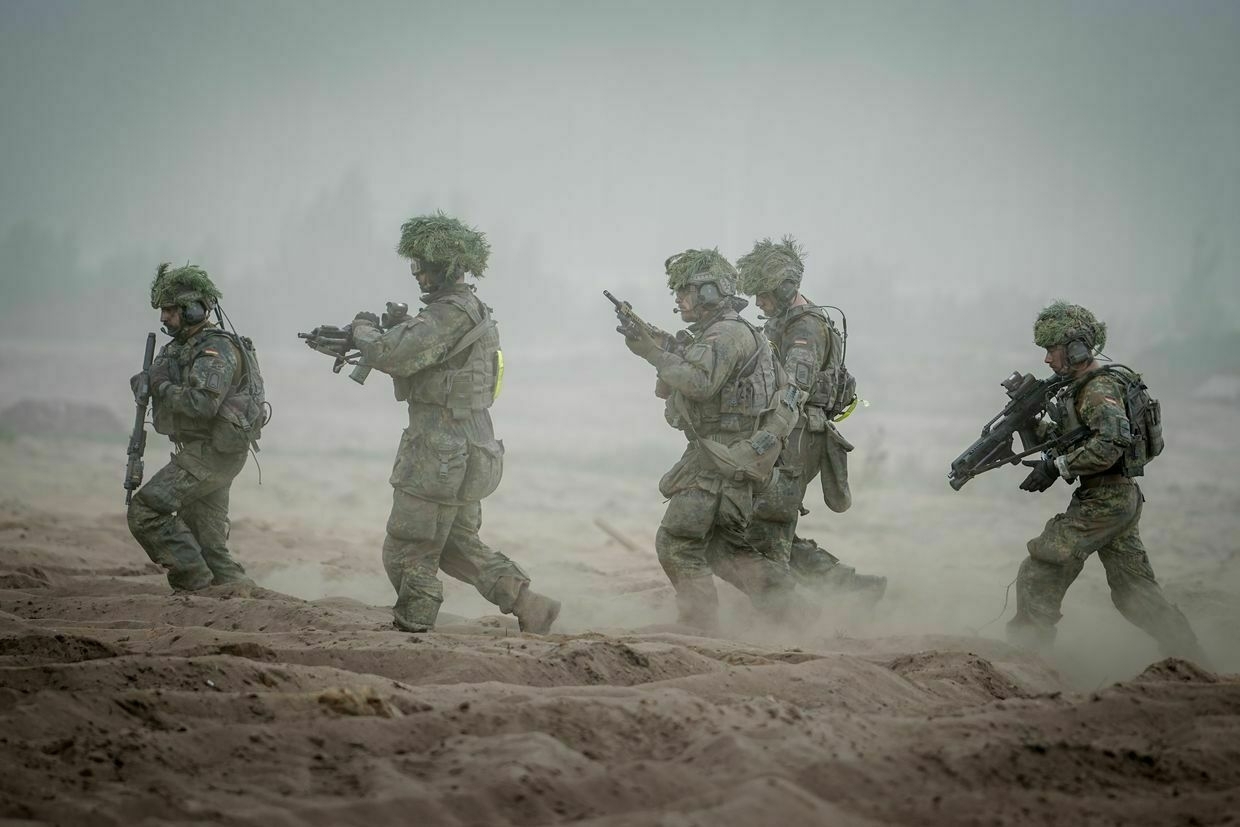
Macron considers UN peacekeeping mission for Ukraine in case of peace deal, Telegraph reports
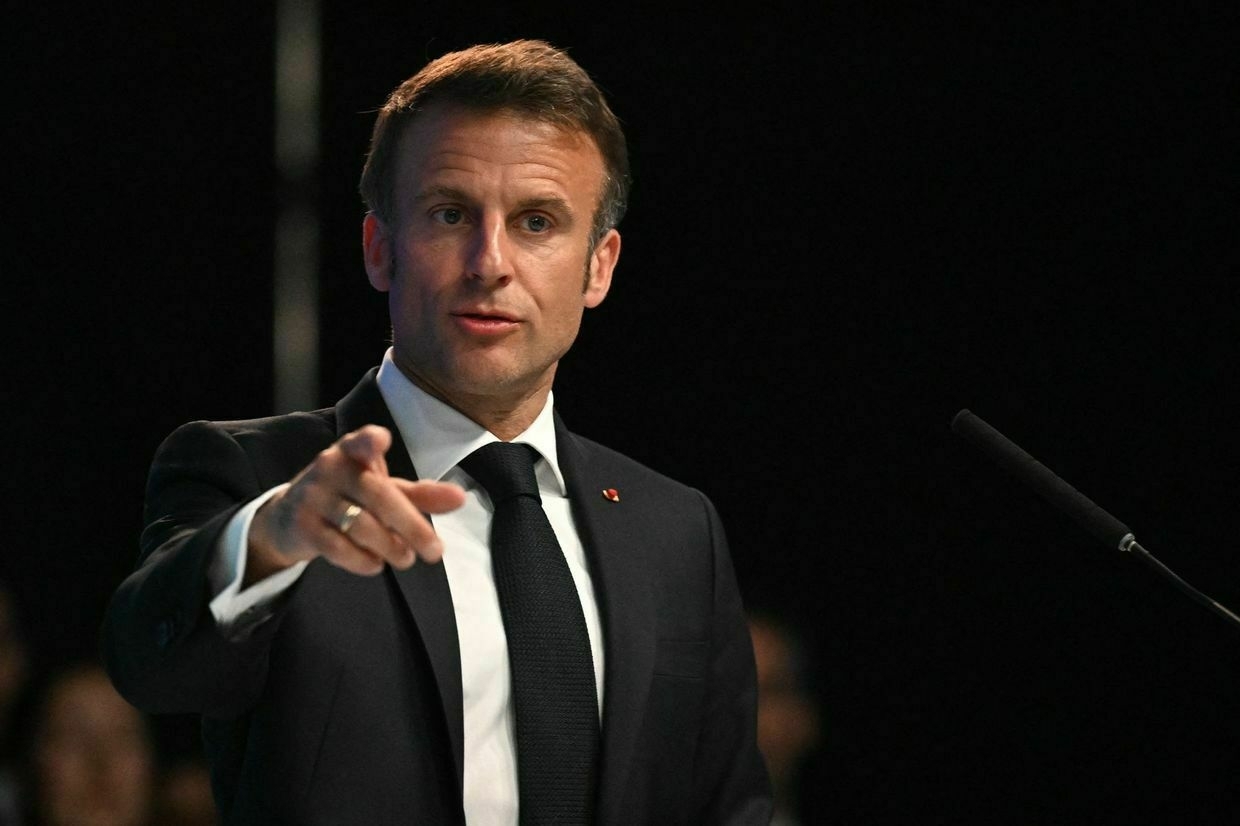
French President Emmanuel Macron is exploring the possibility of establishing a United Nations-led peacekeeping mission to protect Ukraine in the event of a potential peace agreement, the Telegraph reported on March 21.
The proposal follows ongoing efforts by a “coalition of the willing” led by the U.K. and France, which aims to provide security guarantees to Ukraine.
The initiative was first introduced by British Prime Minister Keir Starmer during a March 2 summit in London, where leaders from European nations and Canada discussed military support for Kyiv.
Macron reportedly raised the idea of a UN-backed alternative during a European Council summit, where he discussed the concept with UN Secretary-General Antonio Guterres.
The proposal would align with traditional UN peacekeeping operations, which typically involve deploying multinational forces to maintain security, protect civilians, and facilitate humanitarian aid in conflict zones.
Any UN peacekeeping force would require approval from the UN Security Council, where Russia holds veto power. Given Moscow’s opposition to foreign troops in Ukraine, the likelihood of securing a UN mandate remains slim.
U.S. President Donald Trump claimed on Feb. 24 that Russian President Vladimir Putin would allow European peacekeepers to operate in Ukraine as part of a settlement, though Russian Foreign Minister Sergey Lavrov publicly rejected the idea.
Over 30 countries have expressed willingness to contribute to the coalition’s peacekeeping force, Starmer’s spokesperson said on March 17, confirming that the initiative has moved into an “operational phase."
British military leaders have considered deploying Royal Air Force (RAF) fighter jets as part of a potential security arrangement, the Telegraph reported on March 20.
Ukraine accuses Russia of false flag attack on Sudzha gas metering station in Kursk OblastRussian media claimed that Ukrainian forces had struck the key gas transit facility, which plays a crucial role in Russian gas exports to Europe.The Kyiv IndependentTim Zadorozhnyy
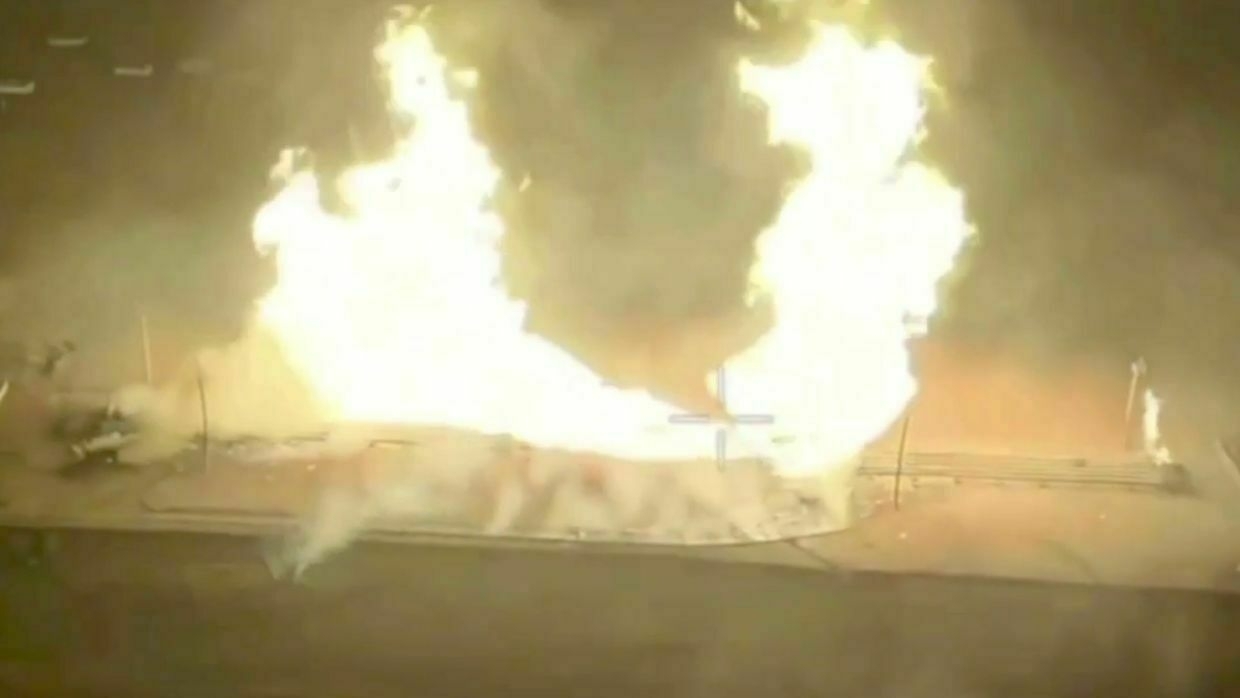
Putin's suspension of strikes on Ukraine's energy infrastructure still in effect, Kremlin says
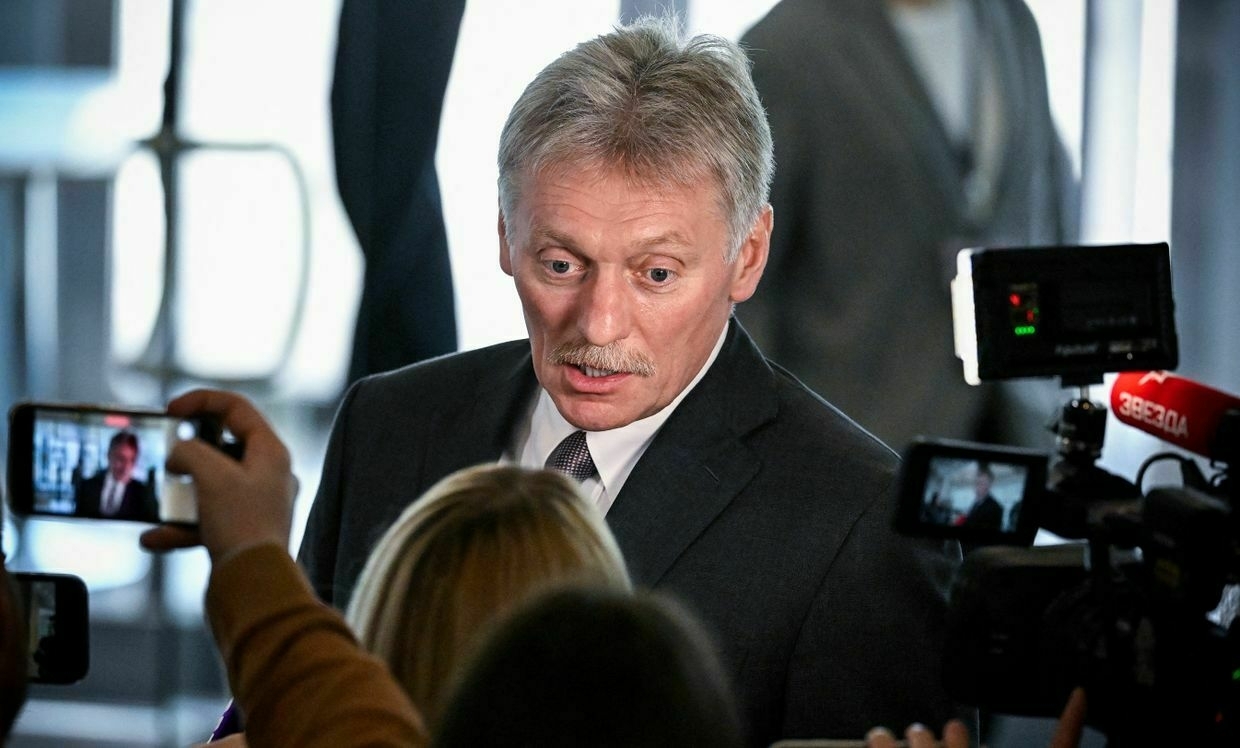
Russian President Vladimir Putin’s order to suspend strikes on Ukraine’s energy infrastructure remains in effect, Kremlin spokesperson Dmitry Peskov said on March 21, state-owned TASS reported.
“The Supreme Commander-in-Chief’s order is in force, and the Russian army is refraining at the moment from strikes on Ukraine’s energy infrastructure following the agreement that was reached between the U.S. and Russia,” Peskov claimed.
The spokesperson added that Moscow has only suspended strikes on energy infrastructure while continuing to target other facilities.
The statements follow a March 18 phone call between U.S. President Donald Trump and Putin, during which the Russian leader agreed to halt attacks on Ukraine’s energy grid.
On March 19, President Volodymyr Zelensky said he had also agreed to stop strikes on Russian energy infrastructure during his own call with Trump.
Despite this, Russian forces continue to bombard Ukrainian cities with missiles, drones, and artillery. On March 20, Moscow launched a mass drone strike on Odesa, injuring three people and damaging civilian infrastructure, Odesa Oblast Governor Oleh Kiper said.
On March 21, Russia accused Ukraine of shelling the Sudzha gas metering station in Russia’s Kursk Oblast, claiming it was a provocation.
Earlier, Russian state media had reported that Ukrainian forces struck the key gas transit facility, which plays a crucial role in Russian gas exports to Europe.
In response, Ukraine’s General Staff denied the claims and accused Russia of attempting to frame Kyiv for the attack.
“The Russians continue to produce numerous fakes and seek to mislead the international community,” the General Staff added.
When asked whether Moscow would consider extending the ceasefire to other types of infrastructure, Peskov said, “This is what was agreed.”
Russia’s Shoigu arrives in North Korea for talks with Kim Jong Un“After he arrives in Pyongyang, Shoigu is scheduled to meet with Kim Jong Un and other North Korean officials,” Russian state media reported.The Kyiv IndependentTim Zadorozhnyy
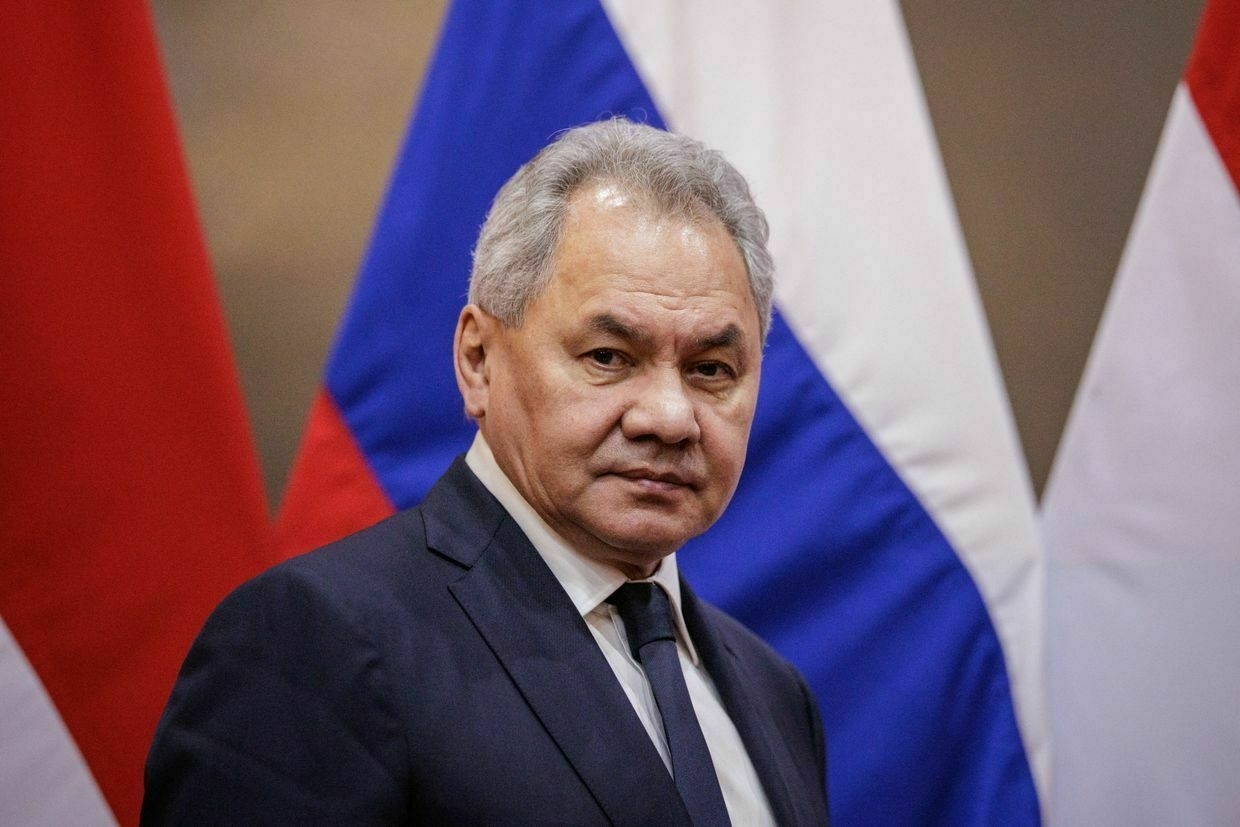
European leaders, Zelensky to meet in Paris next week to discuss Ukraine peace plan
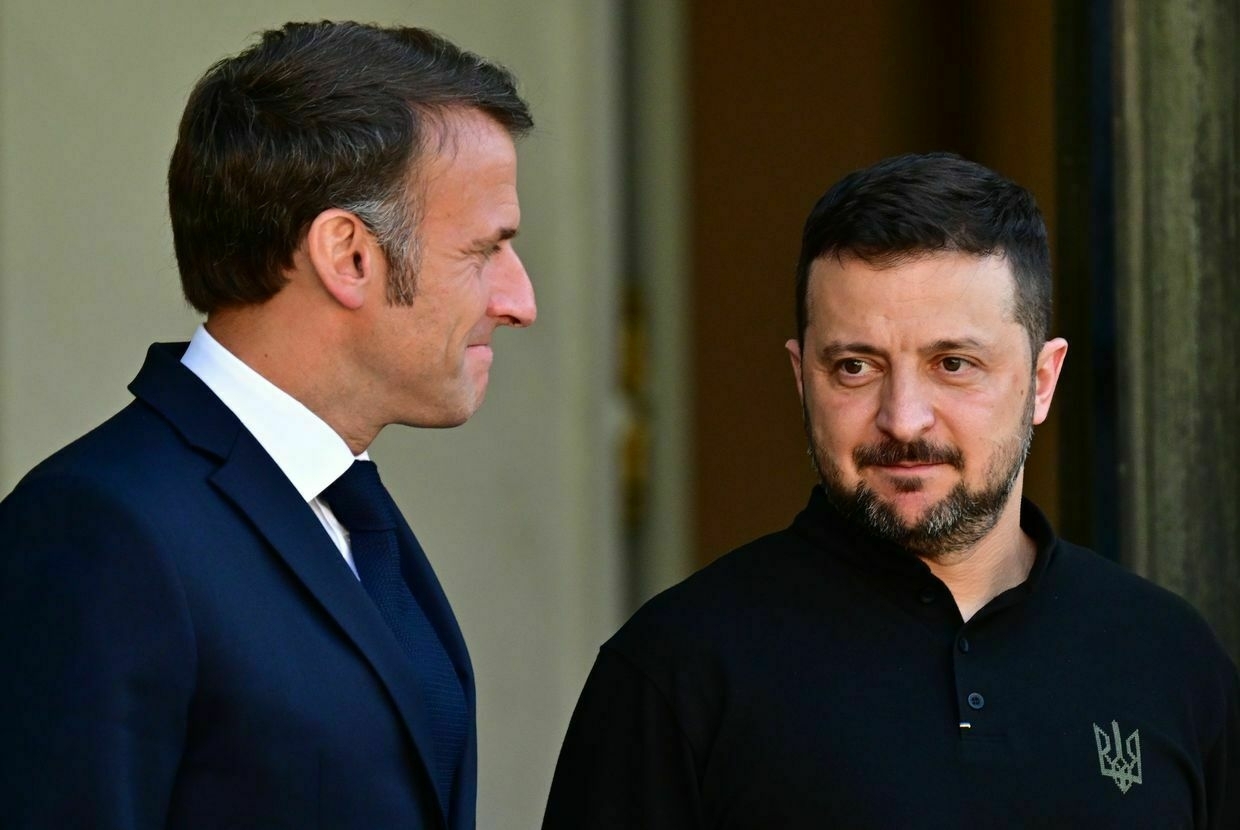
French President Emmanuel Macron will host European leaders, including President Volodymyr Zelensky, in Paris on March 27 to discuss the peace process in Ukraine.
Participants will include the “coalition of the willing,” a group of countries who have pledged to help secure a future peace in Ukraine. Germany, Poland, and the U.K. will attend next week’s Paris peace talks.
“We will finalize our work on short-term support for the Ukrainian army, on defending a sustainable and durable Ukrainian army model to prevent Russian invasions, and then on the security guarantees that European armies can provide,” Macron said at the end of the European Council meeting on March 20.
According to diplomats who spoke to Reuters, Zelensky will arrive in Paris on March 26 and the meetings with international leaders will take place the following day.
Earlier today, the U.S. announced plans to hold indirect talks between Russia and Ukraine in Saudi Arabia. The negotiations are scheduled for March 24 and will involve “shuttle diplomacy,” with Russian and Ukrainian representatives present in separate rooms and U.S. officials mediating.
European representatives have not been invited to participate in the Saudi Arabia talks, despite repeated appeals to include Europe in peace negotiations.
Macron and U.K. Prime Minister Keir Starmer have emerged as Europe’s leading voices in the Russia-Ukraine peace process, lobbying U.S. President Donald Trump to provide security guarantees for Ukraine and organizing a coalition of Western allies to monitor a future ceasefire.
The upcoming Paris talks will follow recent summits organized by France and the U.K., including a virtual summit, which took place on March 15. During the summit, participating leaders discussed plans to send a peacekeeping force to Ukraine.
Ukraine accuses Russia of false flag attack on Sudzha gas metering station in Kursk OblastRussian media claimed that Ukrainian forces had struck the key gas transit facility, which plays a crucial role in Russian gas exports to Europe.The Kyiv IndependentTim Zadorozhnyy
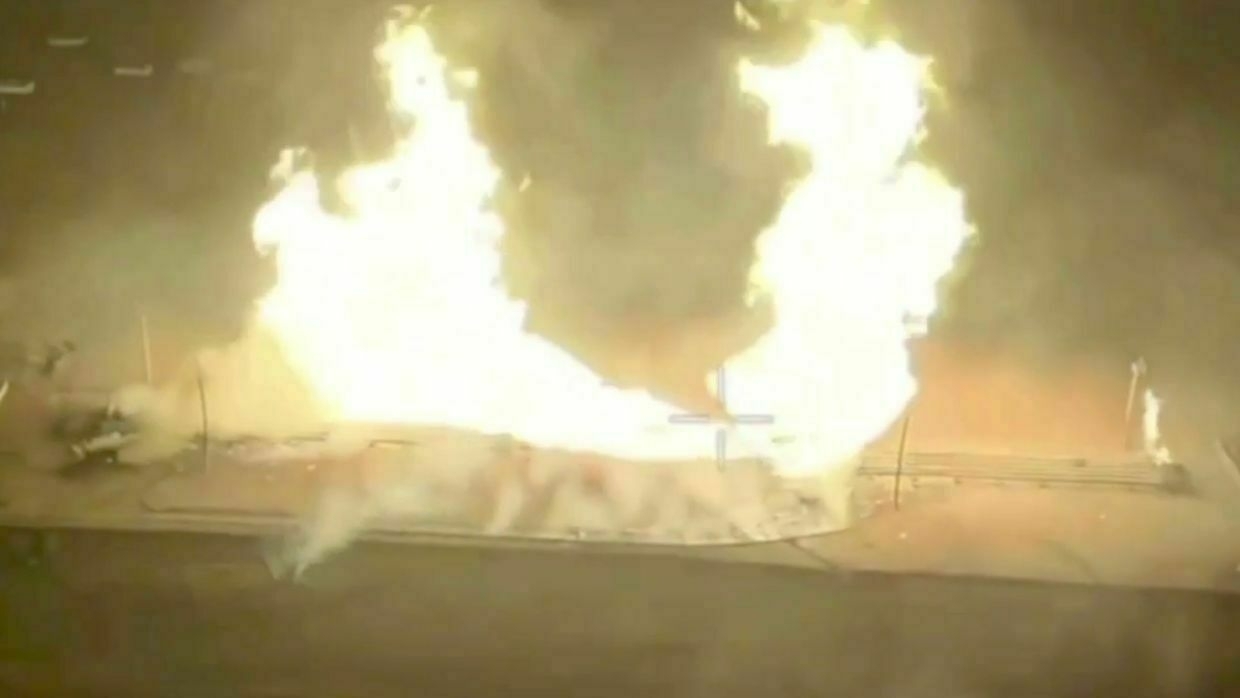
Ukraine accuses Russia of false flag attack on Sudzha gas metering station in Kursk Oblast
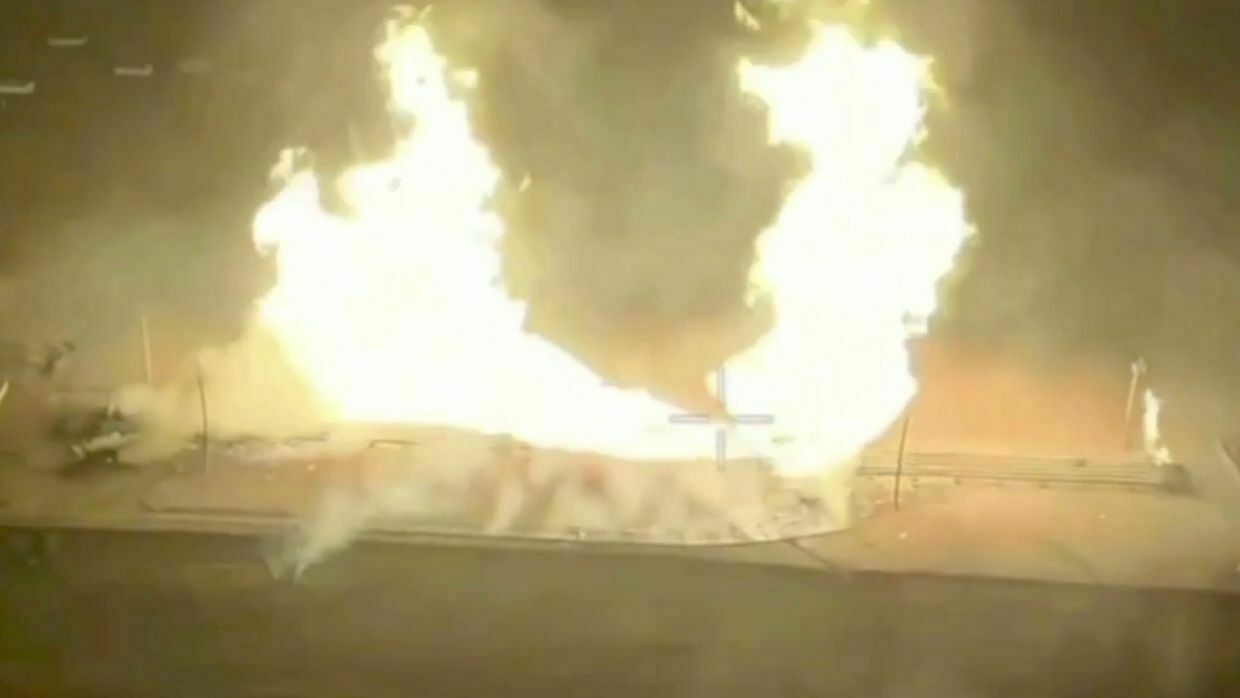
Ukraine on March 21 accused Russia of deliberately attacking the Sudzha gas metering station in Kursk Oblast in an attempt to pin the blame on Kyiv.
Russian media earlier claimed Ukrainian forces had struck the key gas transit facility, which plays a crucial role in Russian gas exports to Europe.
In a post on Facebook, the General Staff said the accusations were “baseless,” and part of a “discrediting campaign against Ukraine."
“The mentioned station was repeatedly shelled by the Russians themselves,” it added.
According to the Ukrainian military, Russia had previously struck the same station with guided aerial bombs, including an attack three days ago.
The General Staff also claimed that Russian forces had used the main gas pipeline near the facility to conceal troop movements.
“The Russians continue to produce numerous fakes and seek to mislead the international community. We ask you to trust only official sources, verify the information, and not succumb to manipulation,” the statement added.
Earlier this month Ukraine released video of what it said were Russian sabotage and assault groups using a gas pipeline to gain a foothold on the outskirts of Sudzha in Russia’s Kursk Oblast.
0:00/The footage shared on March 8, 2025, purporting to show Ukrainian forces repelling a Russian attack in Russia’s Kursk Oblast (Ukraine’s Air Assault Forces/Telegram) The latest incident comes as Ukraine confirmed its retreat from the town of Sudzha following a rapid Russian advance.
Kyiv initially launched a cross-border incursion into Kursk Oblast in August 2024 but has reportedly lost much of the territory in recent weeks.
The development followed a call between U.S. President Donald Trump and Russian President Vladimir Putin, during which Putin agreed to halt strikes on Ukraine’s energy infrastructure.
On March 19, President Volodymyr Zelensky said he had also agreed to stop strikes on Russian energy infrastructure in a phone call with Trump.
UK discussing deploying fighter jets to Ukraine under potential peace deal, Telegraph reportsThe RAF could reportedly deploy either Typhoon or U.S.-made F-35 fighter jets to conduct air patrols, given their advanced air-to-air capabilities.The Kyiv IndependentTim Zadorozhnyy
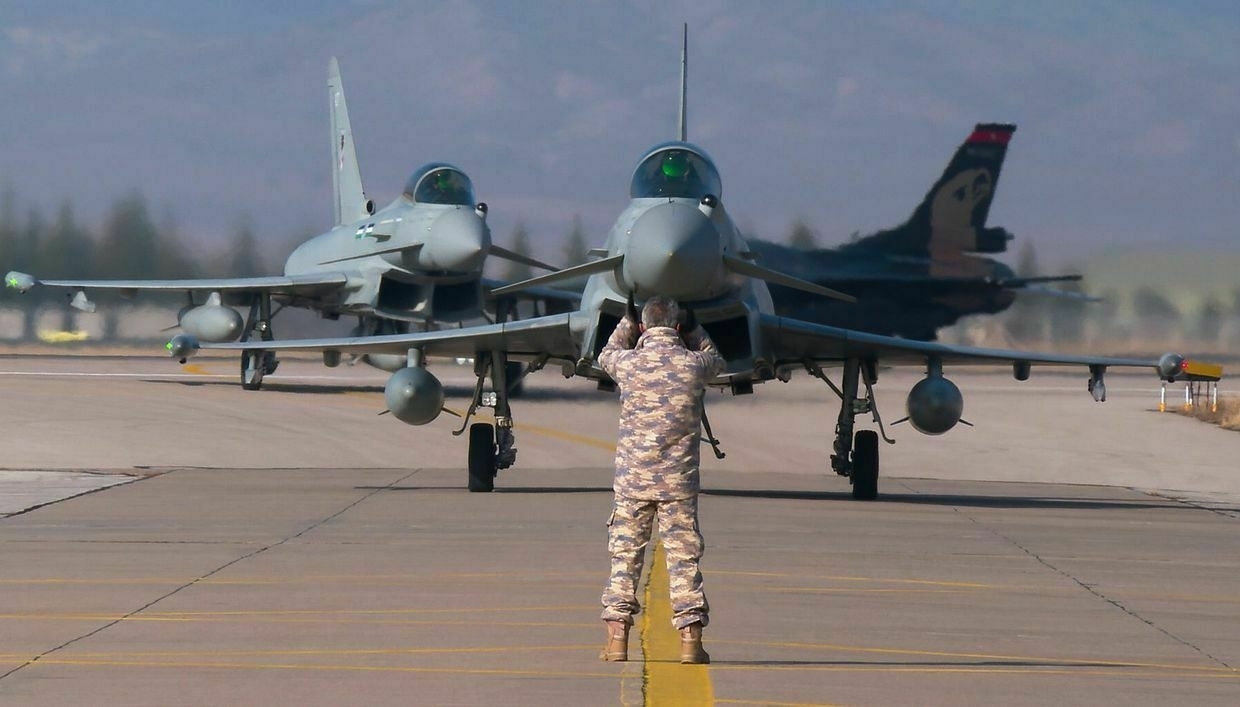
Ukraine accuses Russia of false flag attack on Sudzha gas metering station in Kursk Oblast
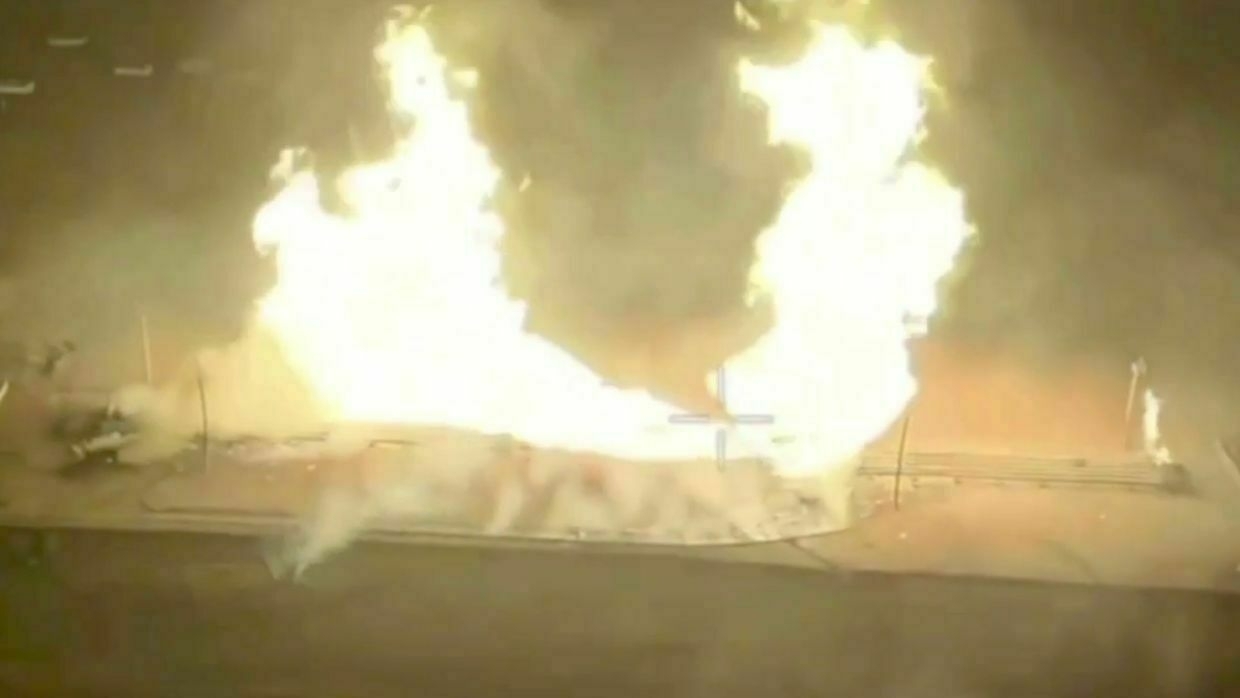
Ukraine on March 21 accused Russia of deliberately attacking the Sudzha gas metering station in Kursk Oblast in an attempt to pin the blame on Kyiv.
Russian media earlier claimed Ukrainian forces had struck the key gas transit facility, which plays a crucial role in Russian gas exports to Europe.
The Russian Defense Ministry claimed that Ukraine allegedly planned to blow up the station, accusing Kyiv of orchestrating a “provocation."
In a post on Facebook, the General Staff said the accusations were “baseless,” and part of a “discrediting campaign against Ukraine."
“The mentioned station was repeatedly shelled by the Russians themselves,” it added.
According to the Ukrainian military, Russia had previously struck the same station with guided aerial bombs, including an attack three days ago.
The General Staff also claimed that Russian forces had used the main gas pipeline near the facility to conceal troop movements.
“The Russians continue to produce numerous fakes and seek to mislead the international community. We ask you to trust only official sources, verify the information, and not succumb to manipulation,” the statement added.
Earlier this month Ukraine released video of what it said were Russian sabotage and assault groups using a gas pipeline to gain a foothold on the outskirts of Sudzha in Russia’s Kursk Oblast.
0:00/The footage shared on March 8, 2025, purporting to show Ukrainian forces repelling a Russian attack in Russia’s Kursk Oblast (Ukraine’s Air Assault Forces/Telegram) The latest incident comes as Ukraine confirmed its retreat from the town of Sudzha following a rapid Russian advance.
Kyiv initially launched a cross-border incursion into Kursk Oblast in August 2024 but has reportedly lost much of the territory in recent weeks.
The development followed a call between U.S. President Donald Trump and Russian President Vladimir Putin, during which Putin agreed to halt strikes on Ukraine’s energy infrastructure.
On March 19, President Volodymyr Zelensky said he had also agreed to stop strikes on Russian energy infrastructure in a phone call with Trump.
UK discussing deploying fighter jets to Ukraine under potential peace deal, Telegraph reportsThe RAF could reportedly deploy either Typhoon or U.S.-made F-35 fighter jets to conduct air patrols, given their advanced air-to-air capabilities.The Kyiv IndependentTim Zadorozhnyy
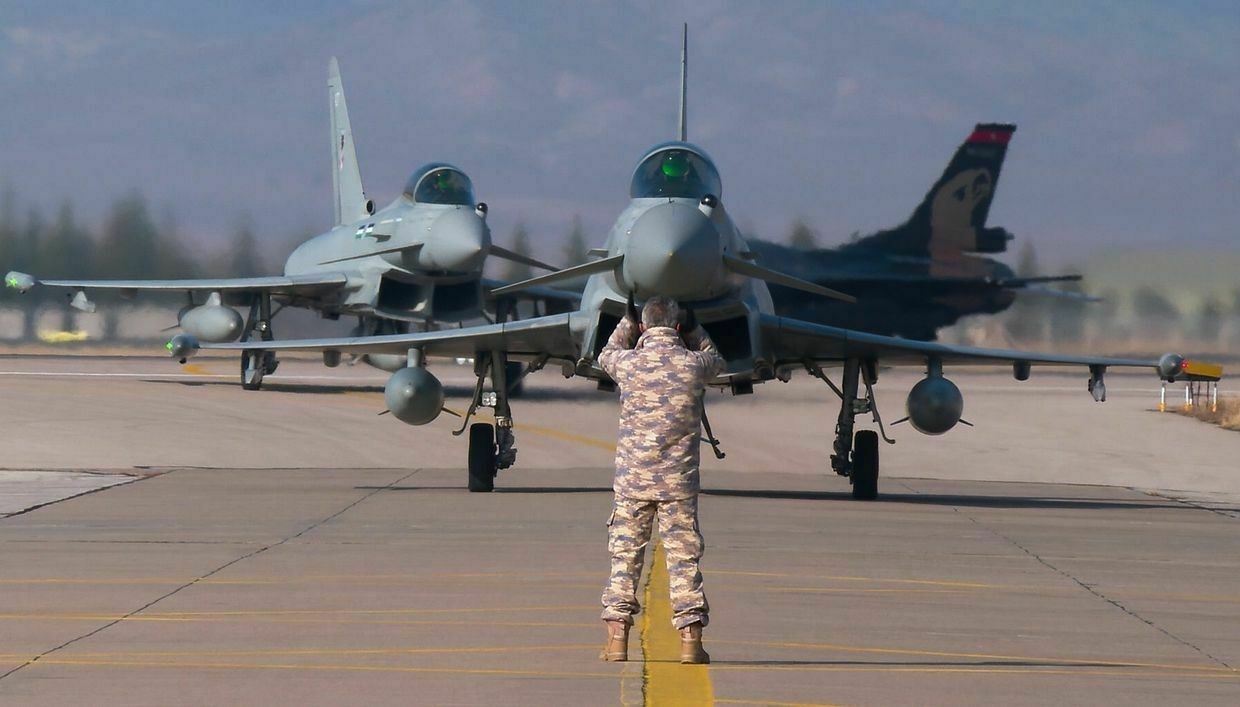
UK discussing deploying fighter jets to Ukraine under potential peace deal, Telegraph reports
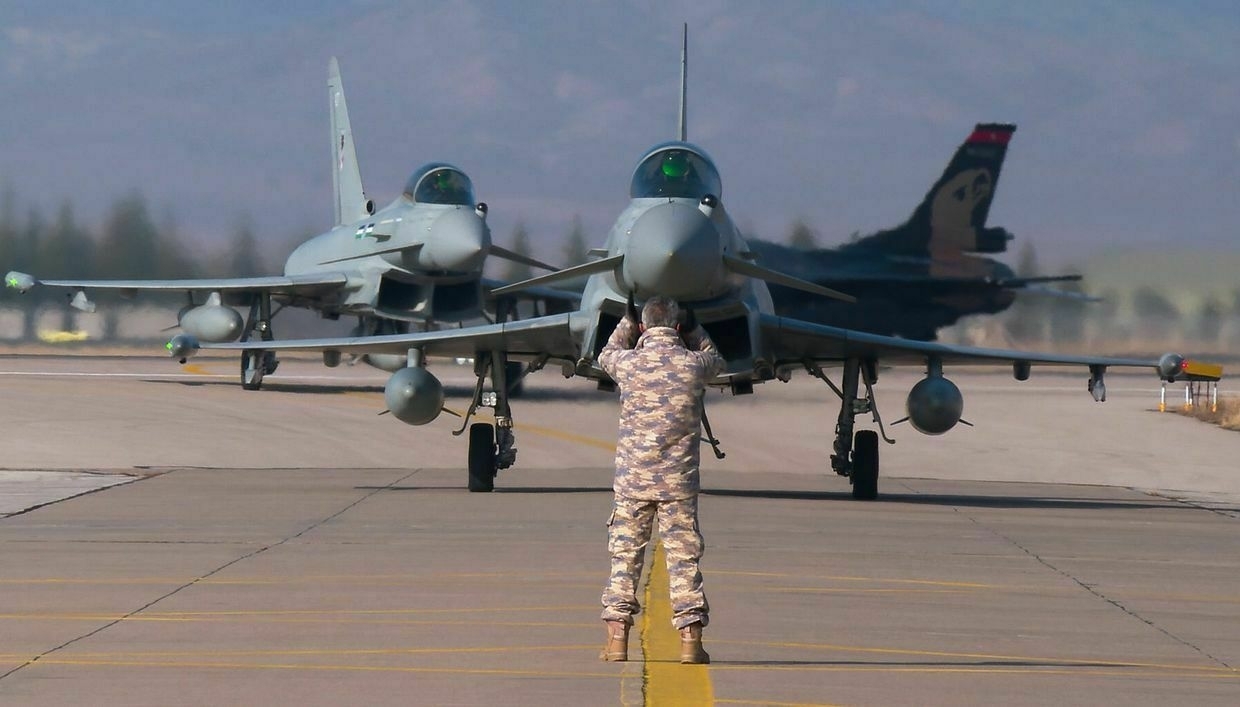
British military leaders have discussed deploying Royal Air Force (RAF) fighter jets to Ukraine as part of a potential peace agreement, the Telegraph reported on March 20, citing unnamed sources familiar with the matter.
According to the report, the discussion took place at the Permanent Joint Headquarters, which oversees all of Britain’s overseas military operations.
The plan is part of a broader “coalition of the willing” initiative led by the U.K. and France, aimed at providing security guarantees to Kyiv.
The peacekeeping initiative was first introduced by British Prime Minister Keir Starmer during a March 2 summit in London, where leaders from European nations and Canada discussed military support for Ukraine.
Starmer participated in additional talks at Northwood Headquarters, hosted by Lt. Gen. Nick Perry, the chief of joint operations, alongside representatives from over 30 countries.
A senior RAF source told the Telegraph that providing “overhead cover” was a key topic of discussion, particularly in scenarios where British troops might enter Ukraine.
The RAF could reportedly deploy either Typhoon or U.S.-made F-35 fighter jets to conduct air patrols, given their advanced air-to-air capabilities.
Starmer has pledged that British forces would be involved in securing a peace deal if U.S. President Donald Trump successfully negotiates one with Russian President Vladimir Putin.
Washington has instead backed the idea of European-led peacekeeping forces monitoring a potential ceasefire but has not offered concrete security guarantees to Ukraine.
More than 30 countries have expressed willingness to contribute to a peacekeeping force, with the U.K. and France leading the initiative.
Canada and Australia have also indicated their openness to participating, according to Starmer’s office.Trump previously claimed on Feb. 24 that Putin would allow European peacekeepers to operate in Ukraine as part of a settlement, though Russian Foreign Minister Sergey Lavrov publicly rejected the idea.
UK discussing deploying fighter jets to Ukraine under potential peace deal, Telegraph reports
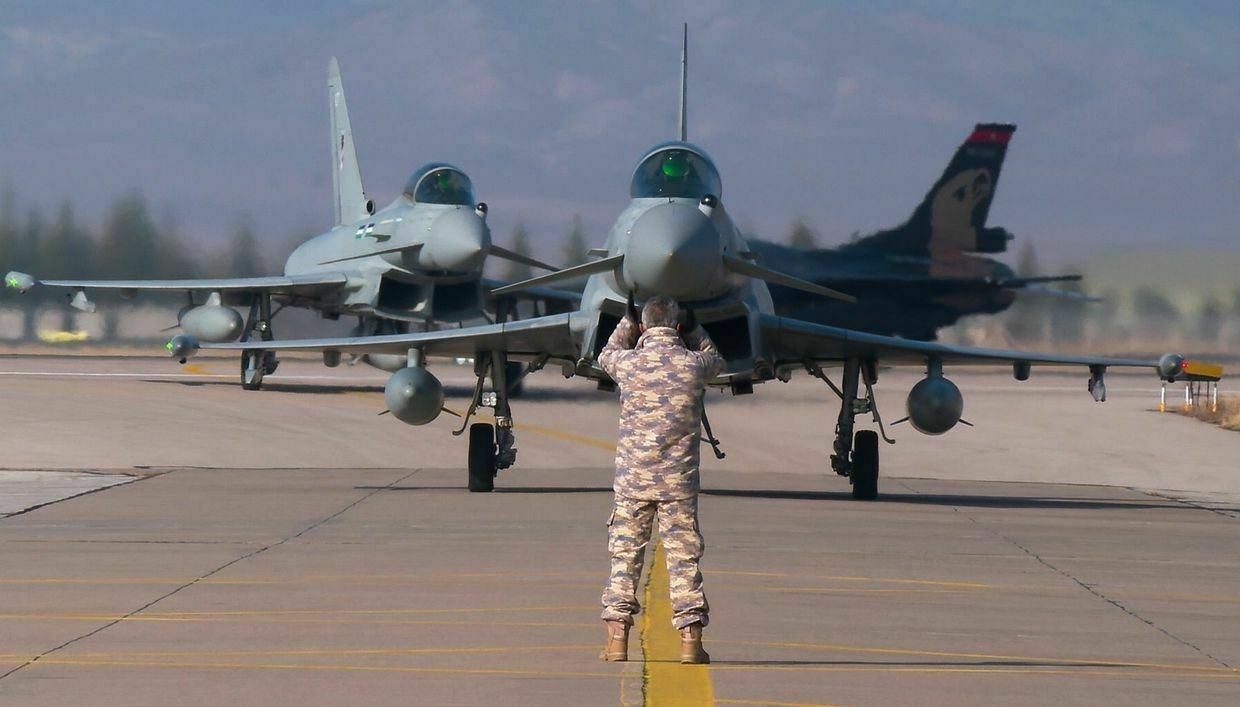
British military leaders have discussed deploying Royal Air Force (RAF) fighter jets to Ukraine as part of a potential peace agreement, the Telegraph reported on March 20, citing unnamed sources familiar with the matter.
According to the report, the discussion took place at the Permanent Joint Headquarters, which oversees all of Britain’s overseas military operations.
The plan is part of a broader “coalition of the willing” initiative led by the U.K. and France, aimed at providing security guarantees to Kyiv.
The peacekeeping initiative was first introduced by British Prime Minister Keir Starmer during a March 2 summit in London, where leaders from European nations and Canada discussed military support for Ukraine.
Starmer participated in additional talks at Northwood Headquarters, hosted by Lt. Gen. Nick Perry, the chief of joint operations, alongside representatives from over 30 countries.
A senior RAF source told the Telegraph that providing “overhead cover” was a key topic of discussion, particularly in scenarios where British troops might enter Ukraine.
The RAF could reportedly deploy either Typhoon or U.S.-made F-35 fighter jets to conduct air patrols, given their advanced air-to-air capabilities.
Starmer has pledged that British forces would be involved in securing a peace deal if U.S. President Donald Trump successfully negotiates one with Russian President Vladimir Putin.
Washington has instead backed the idea of European-led peacekeeping forces monitoring a potential ceasefire but has not offered concrete security guarantees to Ukraine.
More than 30 countries have expressed willingness to contribute to a peacekeeping force, with the U.K. and France leading the initiative.
Canada and Australia have also indicated their openness to participating, according to Starmer’s office.Trump previously claimed on Feb. 24 that Putin would allow European peacekeepers to operate in Ukraine as part of a settlement, though Russian Foreign Minister Sergey Lavrov publicly rejected the idea.
Russia's Kavkazskaya oil facility still burning after two days, more explosions reported
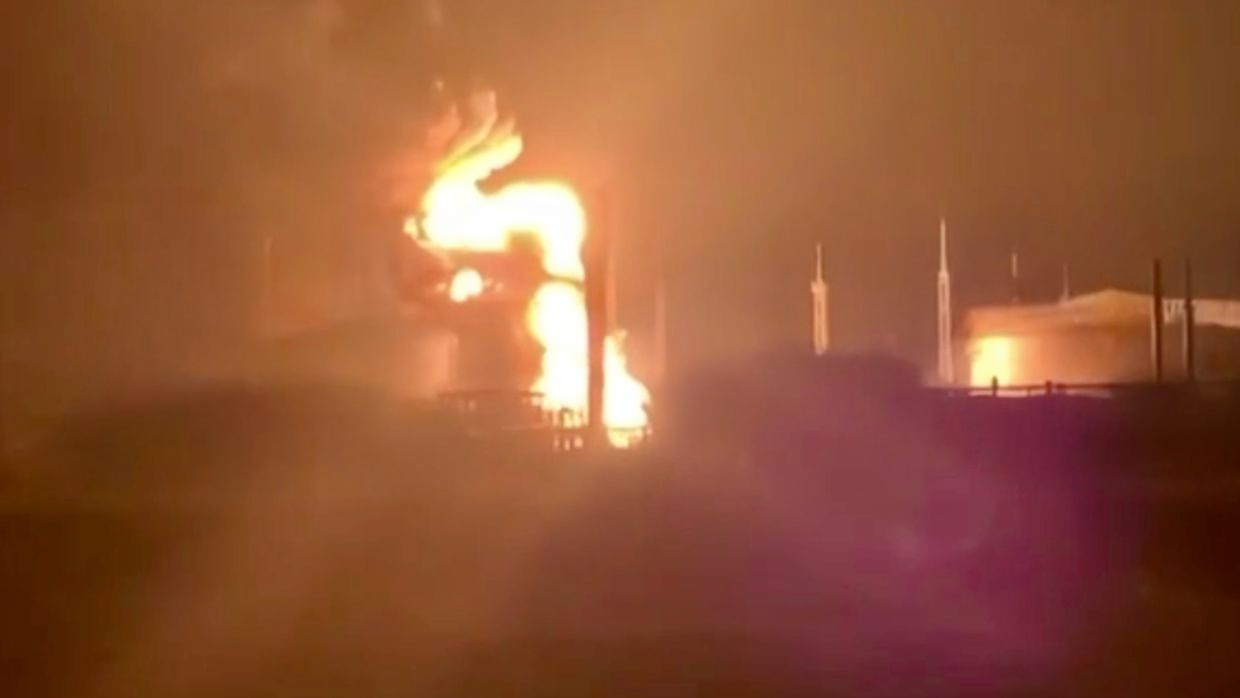
A Russian oil pumping station in Russia’s Krasnodar Krai is still on fire after reportedly being struck by Ukrainian drones on March 19, with further explosions reported overnight.
“During the extinguishing process, due to depressurisation of the burning tank, there was an explosion of oil products and release of burning oil,” regional officials said in a post on Telegram on March 21.
Ukrainian drones attacked the Kavkazskaya oil pumping station, damaging infrastructure and causing a fire, pro-Kremlin news outlet Shot and regional authorities previously claimed.
The attack reportedly damaged a pipeline connecting storage tanks, initially sparking a fire that covered an area of about 20 square meters.
The fire now covers an area of 10,000 square meters and two firefighters have been injured while tackling the blaze.
The regional operational headquarters said on March 19 that 30 on-duty personnel were evacuated and that the facility had suspended operations.
The Kavkazskaya oil transshipment point is crucial in Russia’s energy exports, connecting a railroad oil terminal and the Kropotkinskaya oil pumping station. It is part of the Caspian Pipeline Consortium system, which pumps up to 6 million metric tons of oil annually.
The Kyiv Independent could not verify the claims. The Ukrainian military has not commented on the reported attacks.
Sudzha gas metering station in Russia’s Kursk Oblast on fire following multiple explosionsExplosions occurred at the Sudzha gas metering station (GMS) in Russia’s Kursk Oblast on the night of March 21, followed by a large fire, Russian media and Telegram channels reported.The Kyiv IndependentSonya Bandouil
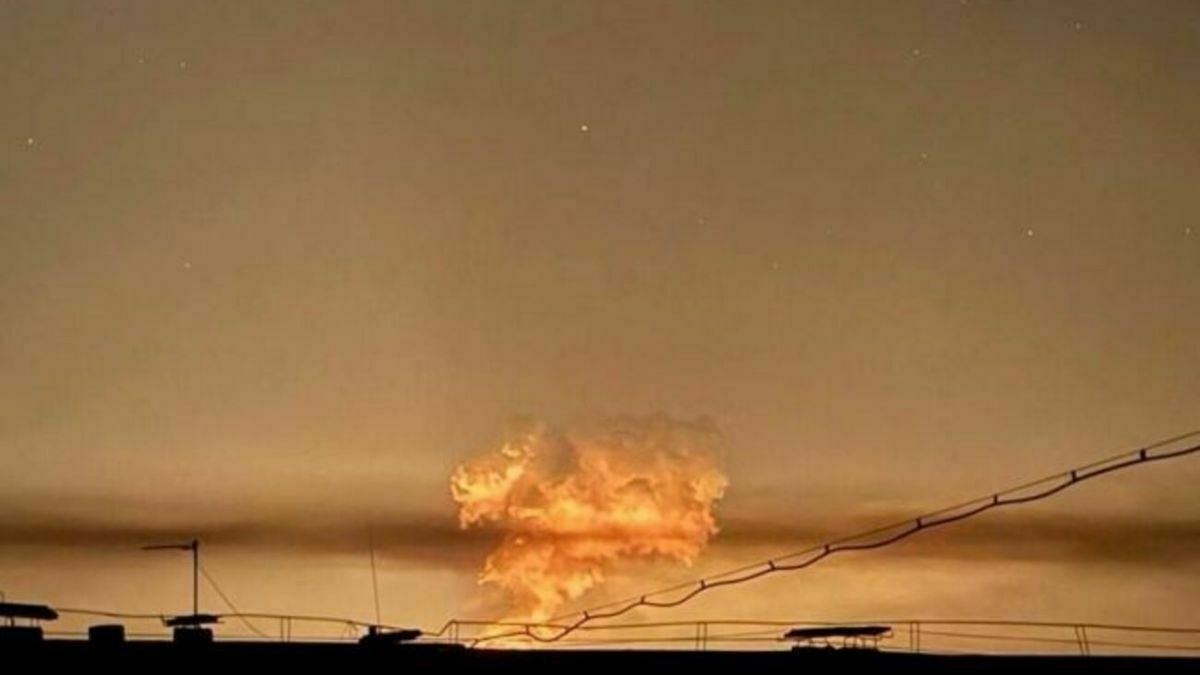
Russia has attempted to use the attack as evidence that Ukraine has already broken a partial ceasefire of attacks on energy infrastructure agreed upon by Russian President Vladimit Putin in a call with U.S. President Donald Trump on March 18.
“We believe that the Kyiv regime has already broken the ceasefire proposed by the U.S. president,” Russian Foreign Ministry spokesperson Maria Zakharova said on March 20, in comments reported by Reuters.
“Now the question is — you will forgive me — how is Washington going to handle this terrorist scum gone mad? How are they going to put them in their place and get them on to something like the right track?” she added.
Despite Zakharova’s comments, Russia has not relented in its attacks on civilian targets in Ukraine, and continues to launch hundreds of kamikaze drones at cities across the country each night.
The strike on the Kavkazskaya oil pumping station follows Ukraine’s Feb. 17 drone attack on the Kropotkinskaya oil pumping station, also in Krasnodar Krai, where seven drones reportedly hit key infrastructure.
Kyiv has intensified its campaign against Russia’s energy and military infrastructure to disrupt Moscow’s war effort.
On March 17, Ukrainian drones struck a fuel and energy facility in Russia’s Astrakhan Oblast, igniting a fire, regional Governor Igor Babushkin claimed.
Ukraine war latest: Russia’s Engels air base ablaze after Ukrainian drone strike, Kyiv saysKey developments on March 20: * Russia’s Engels air base ablaze after Ukrainian drone strike, Kyiv says * Ukraine, US to hold talks in Saudi Arabia on March 24 * Putin orders Ukrainians ‘without legal status’ to leave Russia, occupied territories by Sept. 10 * $5.4 billion on ammunition for Ukr…The Kyiv IndependentThe Kyiv Independent news desk
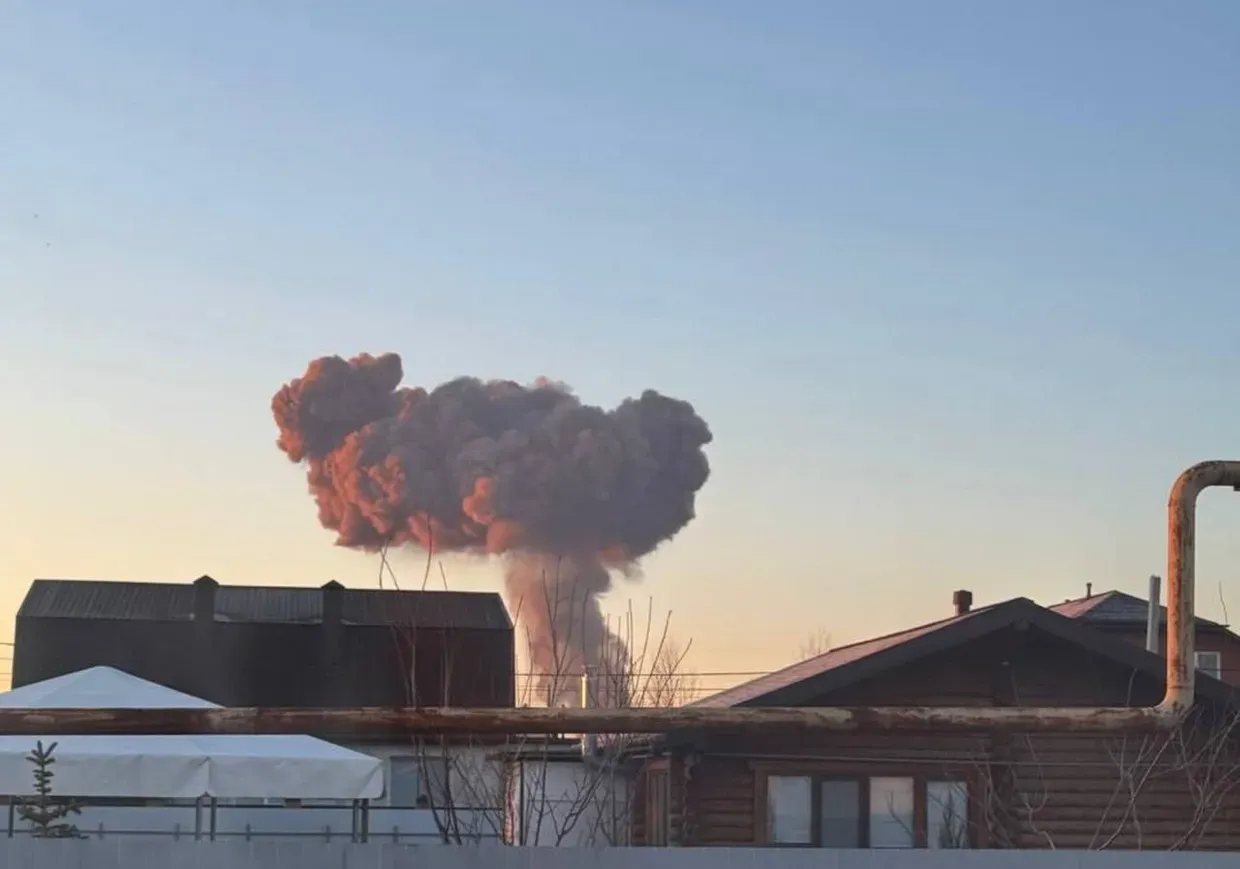
Russia's Kavkazskaya oil facility still burning after two days, more explosions reported
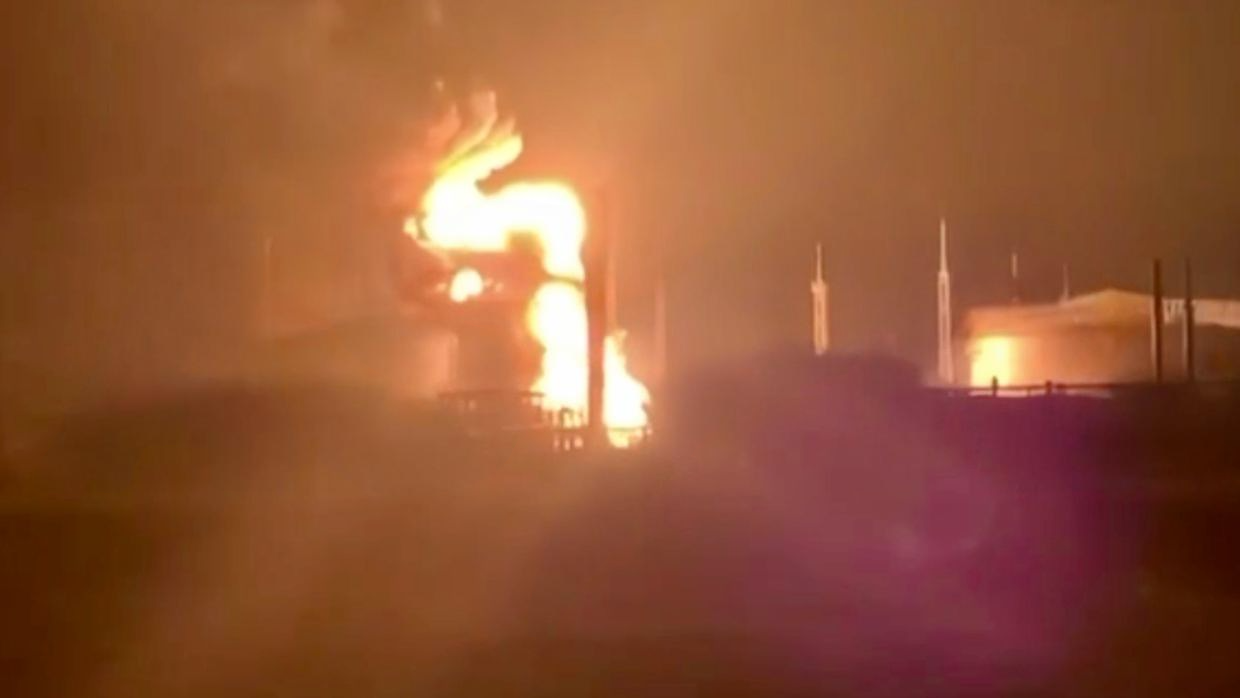
A Russian oil pumping station Krasnodar Krai is still on fire after reportedly being struck by Ukrainian drones on March 19, with further explosions reported overnight.
“During the extinguishing process, due to depressurisation of the burning tank, there was an explosion of oil products and release of burning oil,” regional officials said in a post on Telegram on March 21.
Ukrainian drones attacked the Kavkazskaya oil pumping station, damaging infrastructure and causing a fire, pro-Kremlin news outlet Shot and regional authorities previously claimed.
The attack reportedly damaged a pipeline connecting storage tanks, initially sparking a fire that covered an area of about 20 square meters.
The fire now covers an area of 10,000 square meters and two firefighters have been injured while tackling the blaze.
The regional operational headquarters said on March 19 that 30 on-duty personnel were evacuated and that the facility had suspended operations.
The Kavkazskaya oil transshipment point is crucial in Russia’s energy exports, connecting a railroad oil terminal and the Kropotkinskaya oil pumping station. It is part of the Caspian Pipeline Consortium system, which pumps up to 6 million metric tons of oil annually.
The Kyiv Independent could not verify the claims. The Ukrainian military has not commented on the reported attacks.Russia has attempted to use the attack as evidence that Ukraine has already broken a partial ceasefire of attacks on energy infrastructure agreed upon by Russian President Vladimit Putin in a call with U.S. President Donald Trump on March 18.
“We believe that the Kyiv regime has already broken the ceasefire proposed by the U.S. president,” Russian Foreign Ministry spokesperson Maria Zakharova said on March 20, in comments reported by Reuters.
“Now the question is — you will forgive me — how is Washington going to handle this terrorist scum gone mad? How are they going to put them in their place and get them on to something like the right track?” she added.
Despite Zakharova’s comments, Russia has not relented in its attacks on civilian targets in Ukraine, and continues to launch hundreds of kamikaze drones at cities across the country each night.
The strike on the Kavkazskaya oil pumping station follows Ukraine’s Feb. 17 drone attack on the Kropotkinskaya oil pumping station, also in Krasnodar Krai, where seven drones reportedly hit key infrastructure.
Kyiv has intensified its campaign against Russia’s energy and military infrastructure to disrupt Moscow’s war effort. On March 17, Ukrainian drones struck a fuel and energy facility in Russia’s Astrakhan Oblast, igniting a fire, regional Governor Igor Babushkin claimed.
Putin’s suspension of strikes on Ukraine’s energy infrastructure still in effect, Kremlin saysKremlin spokesperson Dmitry Peskov said Russia has only suspended strikes on energy infrastructure while continuing to target other facilities.The Kyiv IndependentTim Zadorozhnyy
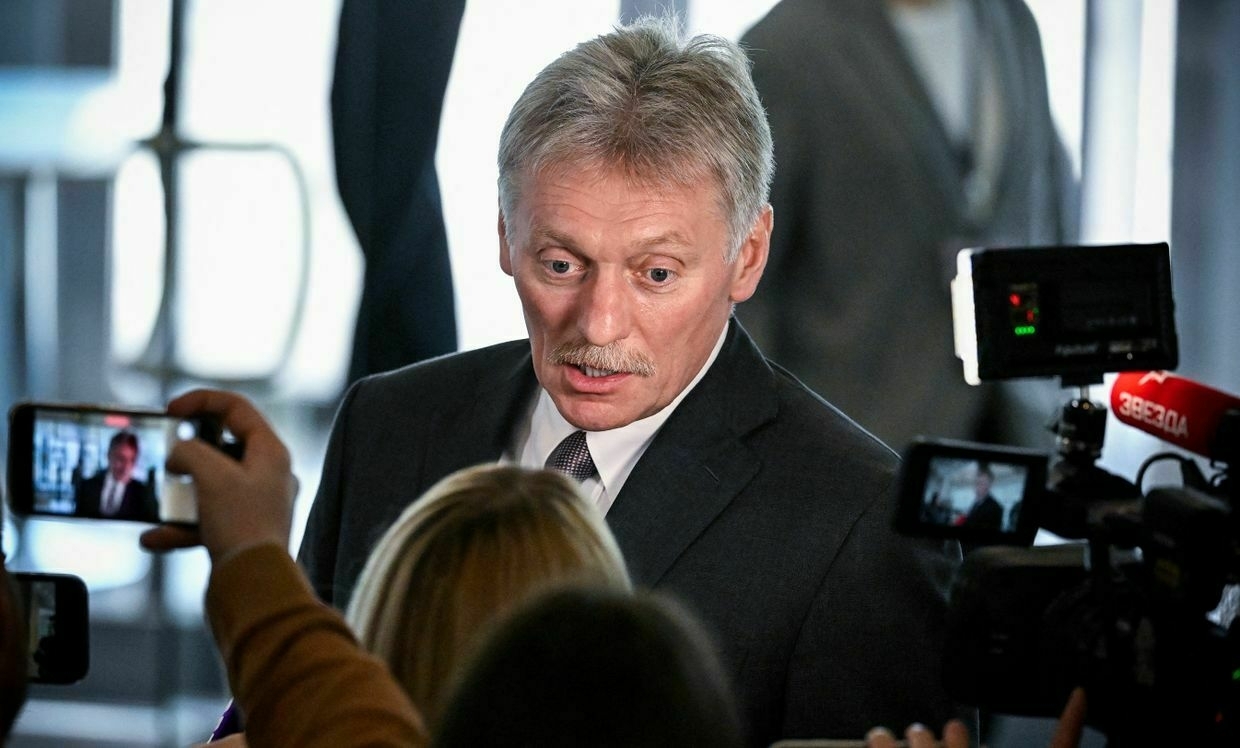
'Putin will breach' peace deal without security guarantees, Starmer says
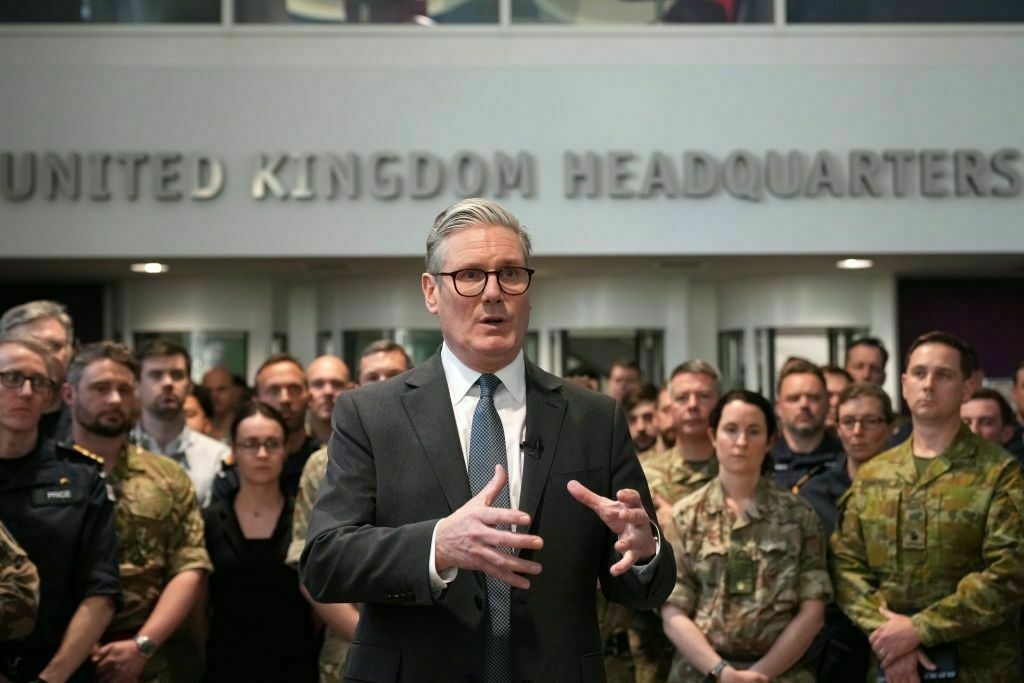
Russian President Vladimir Putin will violate a ceasefire that isn’t backed by security guarantees for Ukraine, U.K. Prime Minister Keir Starmer said in remarks to military planners at the Northwood military base outside London on March 20.
“Because we know one thing for certain, which is a deal without anything behind it is something that Putin will breach,” Starmer said.
“We know that because it’s happened before, and I am absolutely clear in my mind that it will happen again."
Starmer’s remarks followed a meeting with officials from 31 countries, where they discussed potential military deployments to protect Ukraine.
Any peace deal between Russia and Ukraine will “only be lasting” if it is “defended,” Starmer said.
Responding to reporters after his remarks, Starmer also issued a warning to Putin.
“It needs to be clear to Putin that there will be severe consequences if he breaches the lines,” he said.
When asked whether the U.K. would send troops to Ukraine, Starmer said that military planners discussed the provision of land, sea, and air support to “reinforce” Ukrainian capabilities.
“We’re not talking about something that replaces the capability, we’re talking about something that reinforces that and then puts around it capabilities in relation to air, water and sea, and land,” he said.
Starmer’s latest remarks deviated from earlier statements. On March 15, he called for a peacekeeping contingent of 10,000 troops provided by the U.K. and France – a smaller number than the 30,000 troops he reportedly pitched to U.S. President Donald Trump during their White House meeting on Feb. 20.
As the U.K. and allies hammer out details regarding security arrangements for Ukraine, the U.S. has repeatedly sidelined European representatives from peace talks. Upcoming U.S.-led negotiations between Russia and Ukraine are scheduled to take place on March 24 in Saudi Arabia.
French President Emmanuel Macron will convene European and other Western leaders at a summit in Paris on March 27 for talks on peacekeeping in Ukraine. President Volodymyr Zelensky will attend the discussions.
Ukrainian author Oksana Zabuzhko on why Ukrainians ‘don’t have to respect Pushkin’Over the past three years of full-scale war, Ukraine’s cultural figures have shifted from focusing solely on their craft to becoming diplomats, advocating for their culture abroad as the Russian army continues its relentless attempt to destroy it. At the same time, within Ukraine itself, a resurgen…The Kyiv IndependentKate Tsurkan
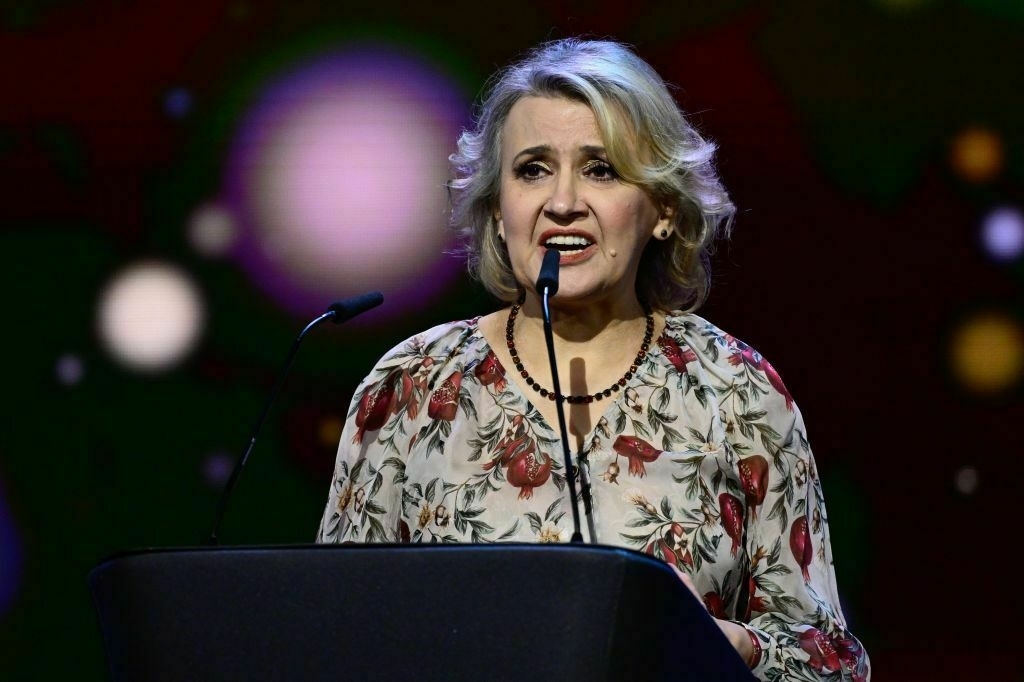
'Putin will breach' peace deal without security guarantees, Starmer says
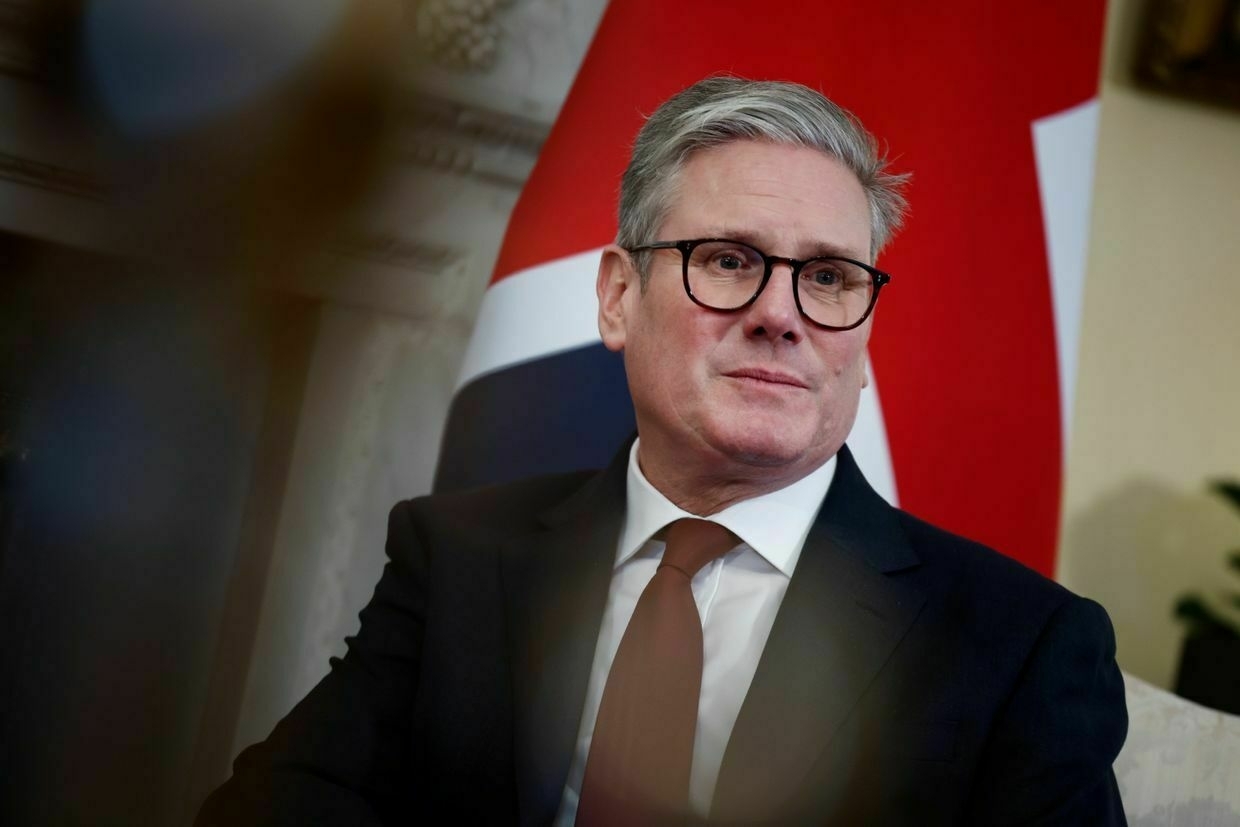
Russian President Vladimir Putin will violate a ceasefire that isn’t backed by security guarantees for Ukraine, U.K. Prime Minister Keir Starmer said in remarks to military planners at the Northwood military base outside London on March 20.
“Because we know one thing for certain, which is a deal without anything behind it is something that Putin will breach,” Starmer said.
“We know that because it’s happened before, and I am absolutely clear in my mind that it will happen again."
Starmer’s remarks followed a meeting with officials from 31 countries, where they discussed potential military deployments to protect Ukraine.
Any peace deal between Russia and Ukraine will “only be lasting” if it is “defended,” Starmer said.
Responding to reporters after his remarks, Starmer also issued a warning to Putin.
“It needs to be clear to Putin that there will be severe consequences if he breaches the lines,” he said.
When asked whether the U.K. would send troops to Ukraine, Starmer said that military planners discussed the provision of land, sea, and air support to “reinforce” Ukrainian capabilities.
“We’re not talking about something that replaces the capability, we’re talking about something that reinforces that and then puts around it capabilities in relation to air, water and sea, and land,” he said.
Starmer’s latest remarks deviated from earlier statements. On March 15, he called for a peacekeeping contingent of 10,000 troops provided by the U.K. and France – a smaller number than the 30,000 troops he reportedly pitched to U.S. President Donald Trump during their White House meeting on Feb. 20.
As the U.K. and allies hammer out details regarding security arrangements for Ukraine, the U.S. has repeatedly sidelined European representatives from peace talks. Upcoming U.S.-led negotiations between Russia and Ukraine are scheduled to take place on March 24 in Saudi Arabia.
French President Emmanuel Macron will convene European and other Western leaders at a summit in Paris on March 27 for talks on peacekeeping in Ukraine. President Volodymyr Zelensky will attend the discussions.
Ukrainian author Oksana Zabuzhko on why Ukrainians ‘don’t have to respect Pushkin’Over the past three years of full-scale war, Ukraine’s cultural figures have shifted from focusing solely on their craft to becoming diplomats, advocating for their culture abroad as the Russian army continues its relentless attempt to destroy it. At the same time, within Ukraine itself, a resurgen…The Kyiv IndependentKate Tsurkan
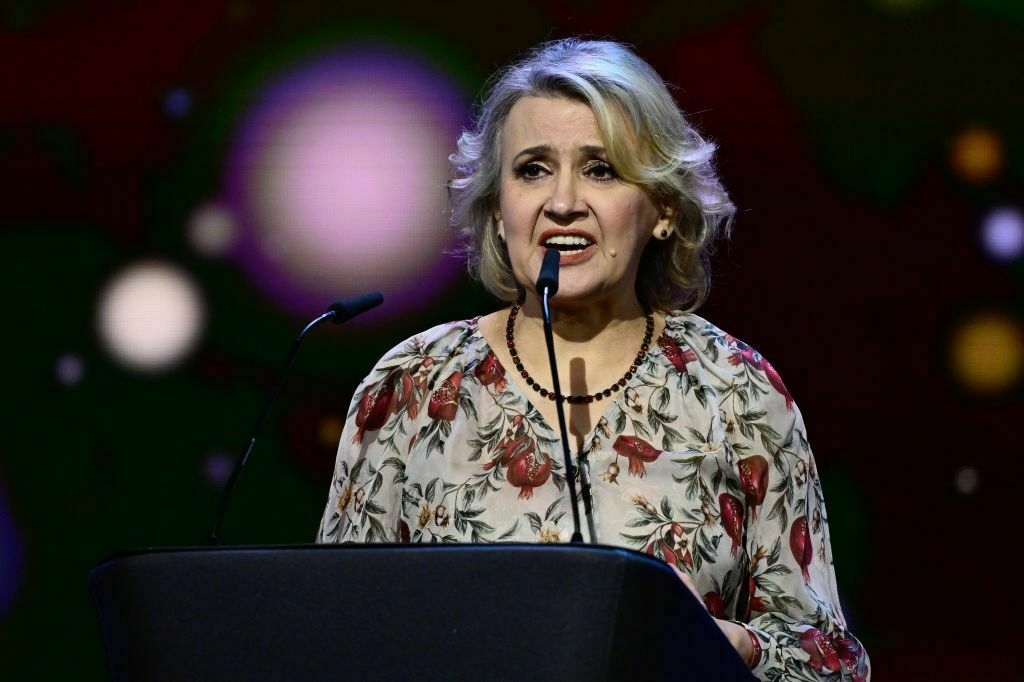
US to sign minerals deal with Ukraine with Ukraine 'very shortly,' Trump says
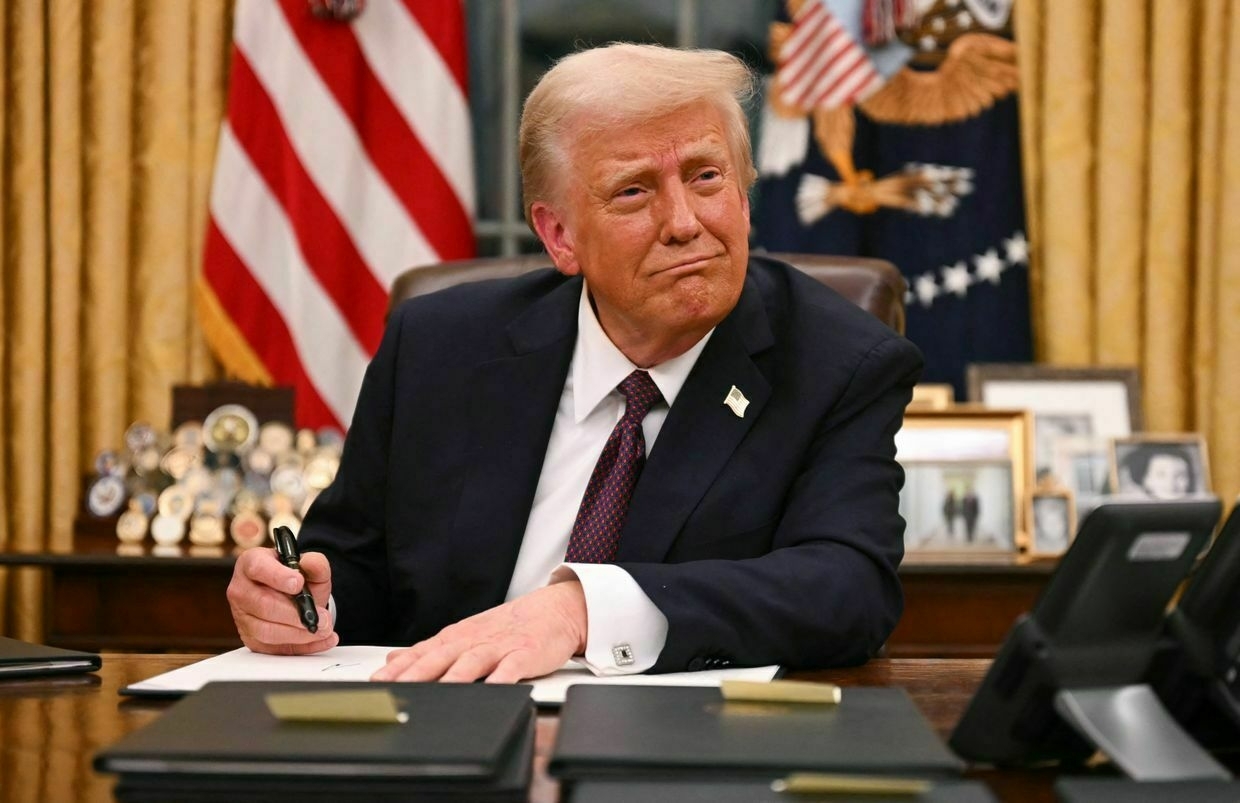
The United States expects to sign an agreement with Ukraine on access to critical minerals and natural resources “very shortly,” U.S. President Donald Trump said on March 20.
The two nations had previously planned to sign a minerals deal on Feb. 28, but the plan was derailed after a heated clash between Trump and President Volodymyr Zelensky.
In a comment during a White House event on education on March 20, Trump said the deal was back on track.
“We’re doing very well with regard to Ukraine and Russia,” Trump said.
“And one of the things we are doing is signing a deal very shortly with respect to rare earths with Ukraine."
Moments before his remarks, Trump signed an executive order to ramp up U.S. production of critical minerals, invoking emergency powers under the Cold War-era Defense Production Act (DPA).
Invoking the DPA suggests that U.S. reliance on mineral imports constitutes a national security threat. Trump’s order calls for dramatically expanding and accelerating efforts to mine and process minerals, which may include coal.
“It’s a big thing in this country,” Trump said.
“And as you know we’re also signing agreements in various locations to unlock rare earths and minerals and lots of other things all over the world. But in particular Ukraine."
The day before Trump’s announcement, White House Press Secretary Karoline Leavitt said that the U.S. had “moved beyond” the minerals deal with Ukraine and was focusing on achieving “a lasting ceasefire.”
Leavitt clarified that she was not saying the deal was off the table.
The much-anticipated minerals agreement would establish a fund to which Ukraine would contribute 50% of proceeds from the future monetization of state-owned mineral resources, including oil, gas, and logistics infrastructure.
Ukraine rejected previous versions of the deal on the grounds that they lacked concrete security guarantees. The final deal, which Kyiv approved, did not provide security assurances but did include a line that says the fund “will be reinvested at least annually in Ukraine to promote the safety, security and prosperity of Ukraine."
The White House has characterized the agreement as a way for the U.S. to “recoup” the financial aid it has directed to Kyiv since the start of Russia’s full-scale invasion.
U.S. and Ukrainian officials are set to hold another round of talks on March 24 in Riyadh, Saudi Arabia. The meeting was announced after Trump held separate calls with Russian President Vladimir Putin and Zelensky earlier this week.
Following his call with Putin, Trump said that the U.S. was looking to explore trade with Russia, which has “valuable things for us, including very big forms of rare earths.”
Putin’s ‘ceasefire’ — Is Russia still bombing Ukraine?The Kremlin on March 18 announced it had agreed to a U.S.-proposed partial ceasefire against certain targets in Ukraine, claiming Russian President Vladimir Putin had “responded favorably to the proposal and immediately” ordered his armed forces to halt attacks. Despite the announcement — made afte…The Kyiv IndependentChris York
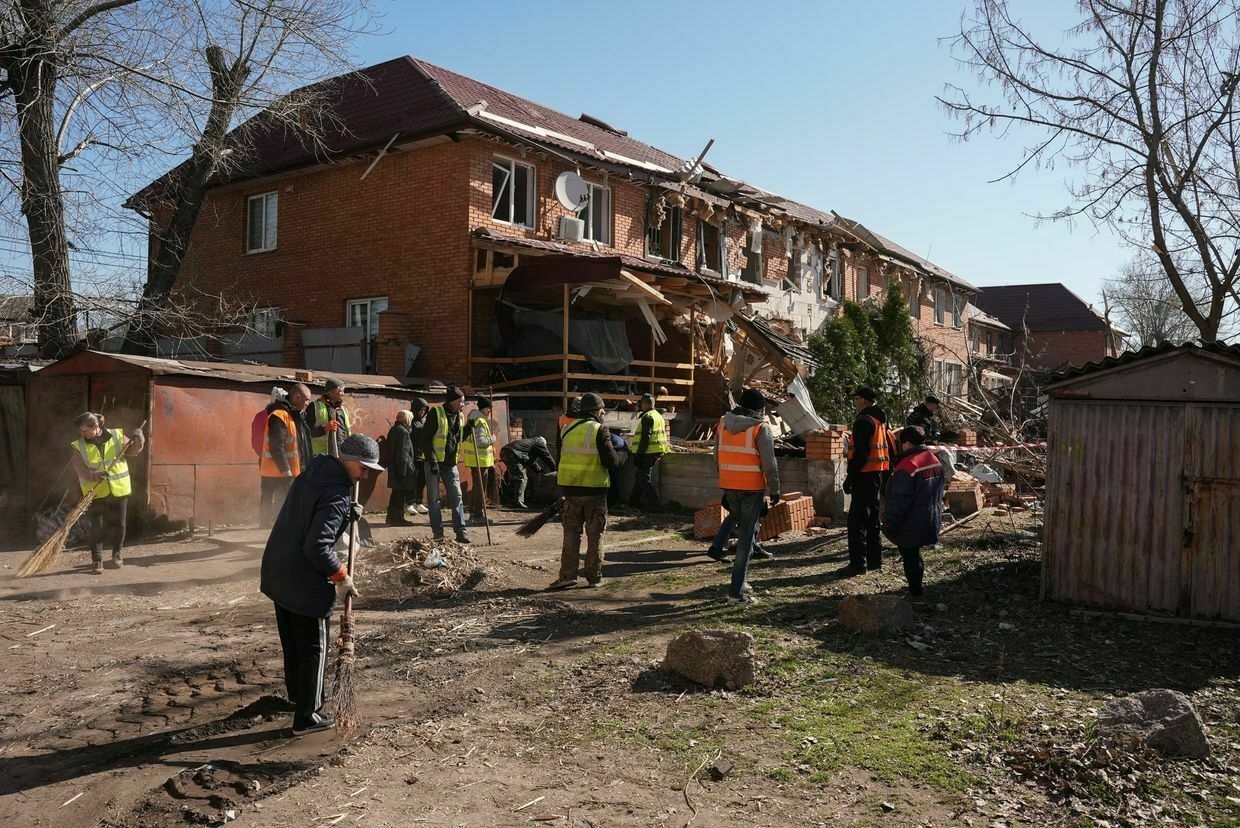
US to sign minerals deal with Ukraine with Ukraine 'very shortly,' Trump says
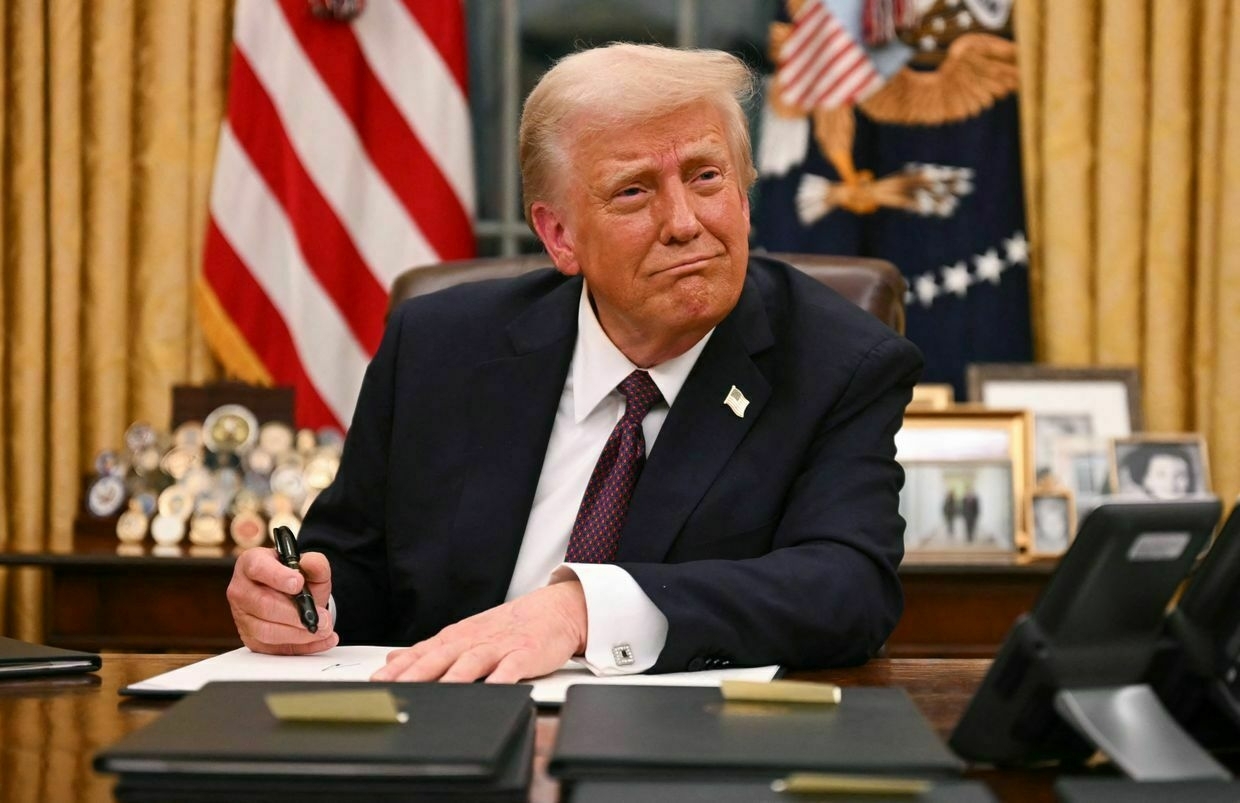
The United States expects to sign an agreement with Ukraine on access to critical minerals and natural resources “very shortly,” U.S. President Donald Trump said on March 20.
The two nations had previously planned to sign a minerals deal on Feb. 28, but the plan was derailed after a heated clash between Trump and President Volodymyr Zelensky.
In a comment during a White House event on education on March 20, Trump said the deal was back on track.
“We’re doing very well with regard to Ukraine and Russia,” Trump said.
“And one of the things we are doing is signing a deal very shortly with respect to rare earths with Ukraine."
Moments before his remarks, Trump signed an executive order to ramp up U.S. production of critical minerals, invoking emergency powers under the Cold War-era Defense Production Act (DPA).
Invoking the DPA suggests that U.S. reliance on mineral imports constitutes a national security threat. Trump’s order calls for dramatically expanding and accelerating efforts to mine and process minerals, which may include coal.
“It’s a big thing in this country,” Trump said.
“And as you know we’re also signing agreements in various locations to unlock rare earths and minerals and lots of other things all over the world. But in particular Ukraine."
The day before Trump’s announcement, White House Press Secretary Karoline Leavitt said that the U.S. had “moved beyond” the minerals deal with Ukraine and was focusing on achieving “a lasting ceasefire."
Leavitt clarified that she was not saying the deal was off the table.
The much-anticipated minerals agreement would establish a fund to which Ukraine would contribute 50% of proceeds from the future monetization of state-owned mineral resources, including oil, gas, and logistics infrastructure.
Ukraine rejected previous versions of the deal on the grounds that they lacked concrete security guarantees. The final deal, which Kyiv approved, did not provide security assurances but did include a line that says the fund “will be reinvested at least annually in Ukraine to promote the safety, security and prosperity of Ukraine."
The White House has characterized the agreement as a way for the U.S. to “recoup” the financial aid it has directed to Kyiv since the start of Russia’s full-scale invasion.
EU should keep frozen Russian assets until reparations paid even if US returns funds, commissioner says“G7 decision that those assets are not going back to Russia unless Russia pays for its damages is something which is already decided. And it’s important to stick with this decision,” EU Economy and Trade Commissioner Valdis Dombrovskis said.The Kyiv IndependentDominic Culverwell
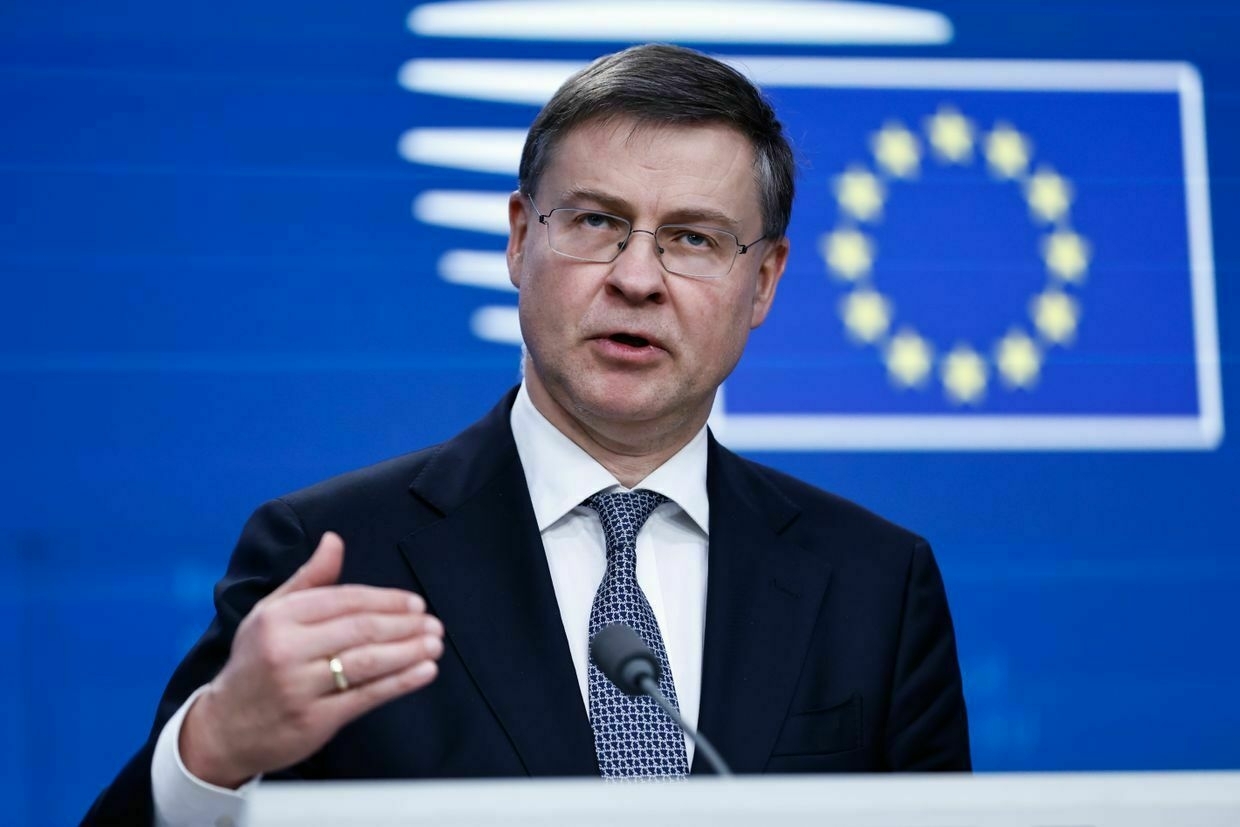
European leaders, Zelensky to meet in Paris next week to discuss Ukraine peace plan
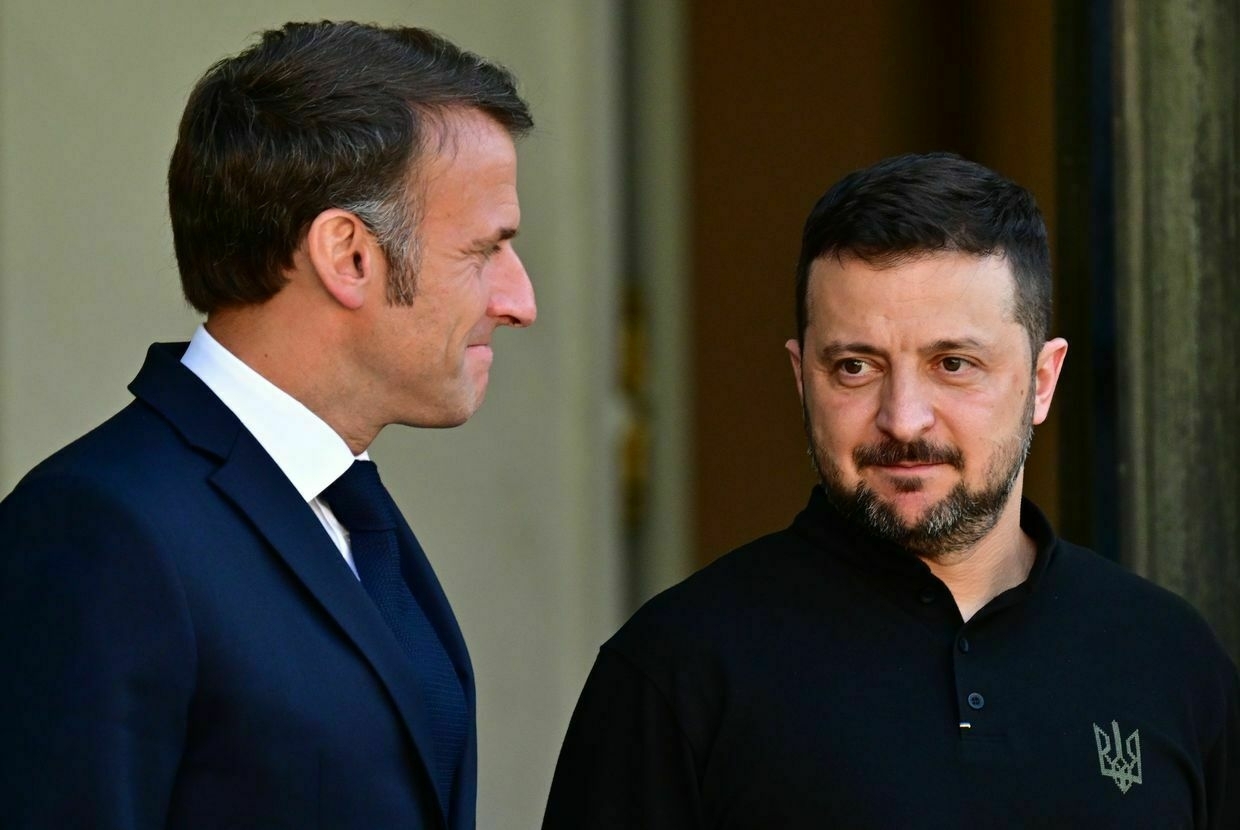
French President Emmanuel Macron will host European leaders, including President Volodymyr Zelensky, in Paris on March 27 to discuss the peace process in Ukraine.
Participants will include the “coalition of the willing,” a group of countries who have pledged to help secure a future peace in Ukraine. Germany, Poland, and the U.K. will attend next week’s Paris peace talks.
“We will finalize our work on short-term support for the Ukrainian army, on defending a sustainable and durable Ukrainian army model to prevent Russian invasions, and then on the security guarantees that European armies can provide,” Macron said at the end of the European Council meeting on March 20.
According to diplomats who spoke to Reuters, Zelensky will arrive in Paris on March 26 and the meetings with international leaders will take place the following day.
Earlier today, the U.S. announced plans to hold indirect talks between Russia and Ukraine in Saudi Arabia. The negotiations are scheduled for March 24 and will involve “shuttle diplomacy,” with Russian and Ukrainian representatives present in separate rooms and U.S. officials mediating.
European representatives have not been invited to participate in the Saudi Arabia talks, despite repeated appeals to include Europe in peace negotiations.
Macron and U.K. Prime Minister Keir Starmer have emerged as Europe’s leading voices in the Russia-Ukraine peace process, lobbying U.S. President Donald Trump to provide security guarantees for Ukraine and organizing a coalition of Western allies to monitor a future ceasefire.
The upcoming Paris talks will follow recent summits organized by France and the U.K., including a virtual summit which took place on March 15. During the summit, participating leaders discussed plans to send a peacekeeping force to Ukraine.
Ukraine war latest: Russia’s Engels air base ablaze after Ukrainian drone strike, Kyiv saysKey developments on March 20: * Russia’s Engels air base ablaze after Ukrainian drone strike, Kyiv says * Ukraine, US to hold talks in Saudi Arabia on March 24 * Putin orders Ukrainians ‘without legal status’ to leave Russia, occupied territories by Sept. 10 * $5.4 billion on ammunition for Ukr…The Kyiv IndependentThe Kyiv Independent news desk
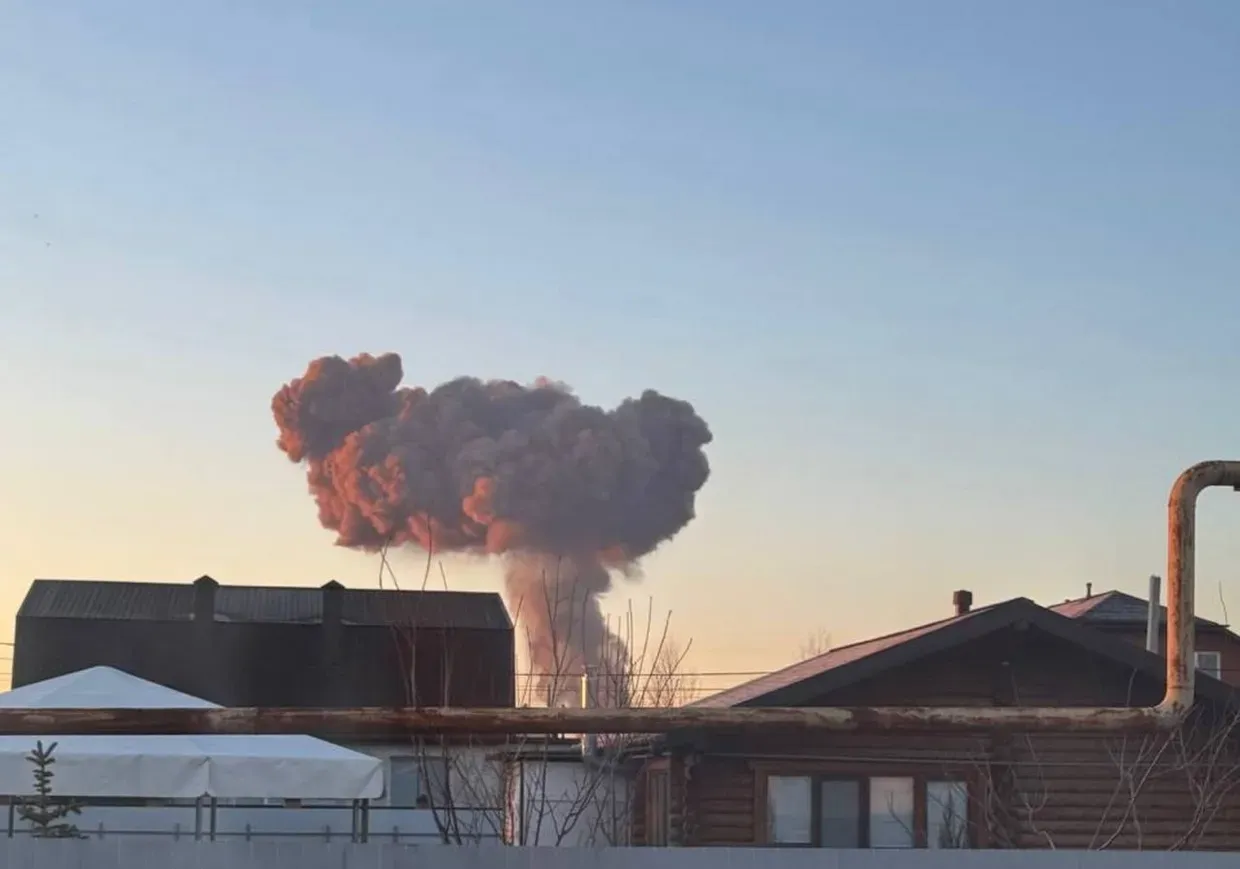
Ukraine war latest: Russia's Engels air base ablaze after Ukrainian drone strike, Kyiv says
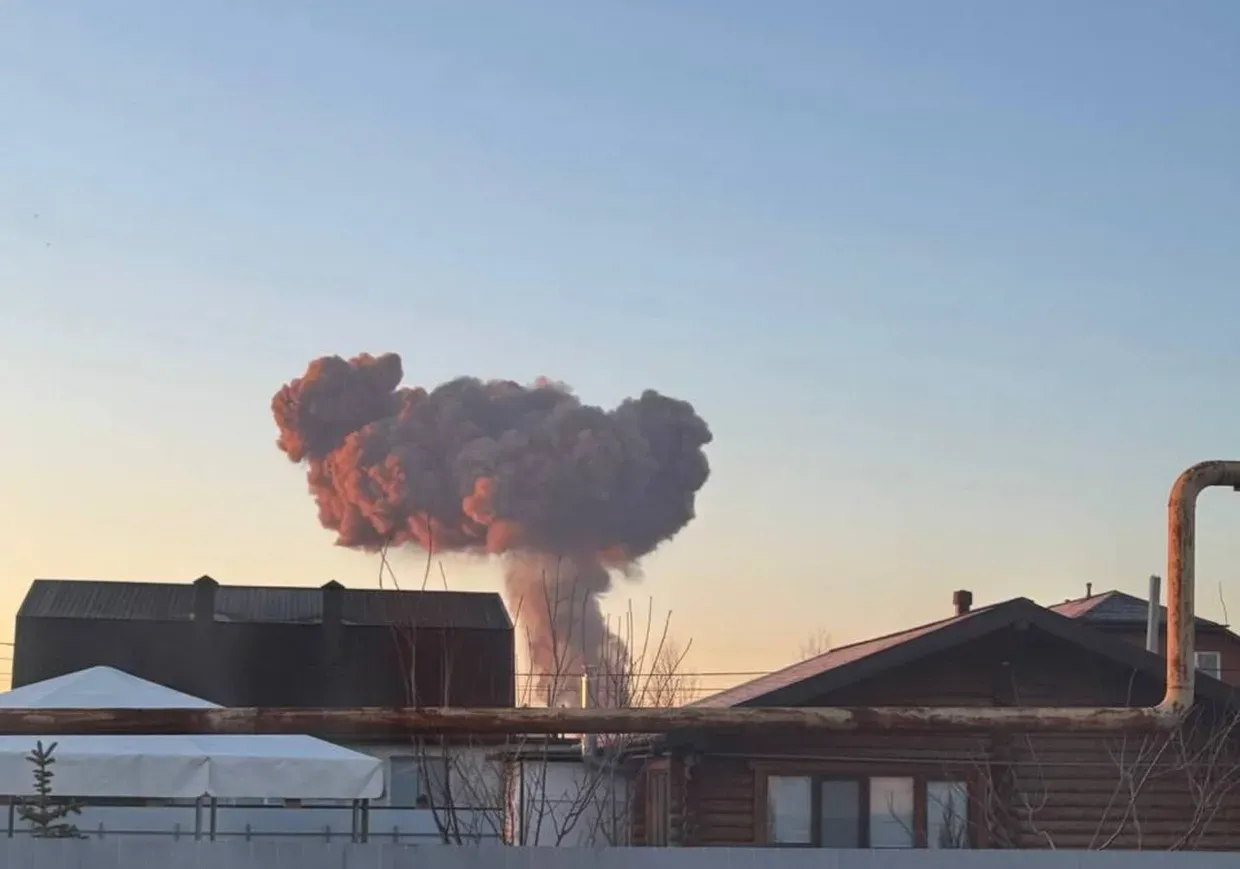
Key developments on March 20:
- Russia’s Engels air base ablaze after Ukrainian drone strike, Kyiv says
- Ukraine, US to hold talks in Saudi Arabia on March 24
- Putin orders Ukrainians ‘without legal status’ to leave Russia, occupied territories by Sept. 10
- $5.4 billion on ammunition for Ukraine ‘realistic’ goal, EU’s top diplomat says
- Ukraine ‘destroys’ Russian command post in Belgorod Oblast, military claims
Russia’s Engels-2 air base in Saratov Oblast was successfully hit by Ukrainian drones overnight on March 20, a source in the Security Service of Ukraine (SBU) confirmed for the Kyiv Independent.
The statement comes after Governor Roman Busargin reported the heaviest drone strike against Saratov Oblast throughout the entire full-scale war.
A fire, explosions, and secondary detonations of ammunition were recorded at the air base following the attack carried out by the SBU and the Special Operations Forces, the source said.
The Engels-2 military air base hosts strategic bomber planes regularly used for aerial strikes on Ukraine. The independent news channel Astra reported explosions near the air base. According to Busargin, residents living near the airfield were being evacuated.
The General Staff of Ukraine’s Armed Forces also reported on the attack.
“This military facility is used by Russian aviation to launch missile strikes on the territory of Ukraine and terrorist attacks against the civilian population,” the statement read.
Residents reported an air raid alert followed by a series of explosions in Saratov and Engels, according to Russian Telegram channels. At least four blasts could be heard at around 4 a.m. local time, according to Mash.
Russian air defenses were “ineffective” and launched missiles toward civilian buildings and infrastructure in Engels and Saratov, according to the SBU source.
The Kyiv Independent could not verify the claims.
‘Massive’ drone attack on Kirovohrad Oblast injures 10, including childrenRussia launched its “largest attack in recent years” on Kropyvnytskyi in Kirovohrad Oblast overnight on March 20, Governor Andrii Raikovych said.The Kyiv IndependentDmytro Basmat
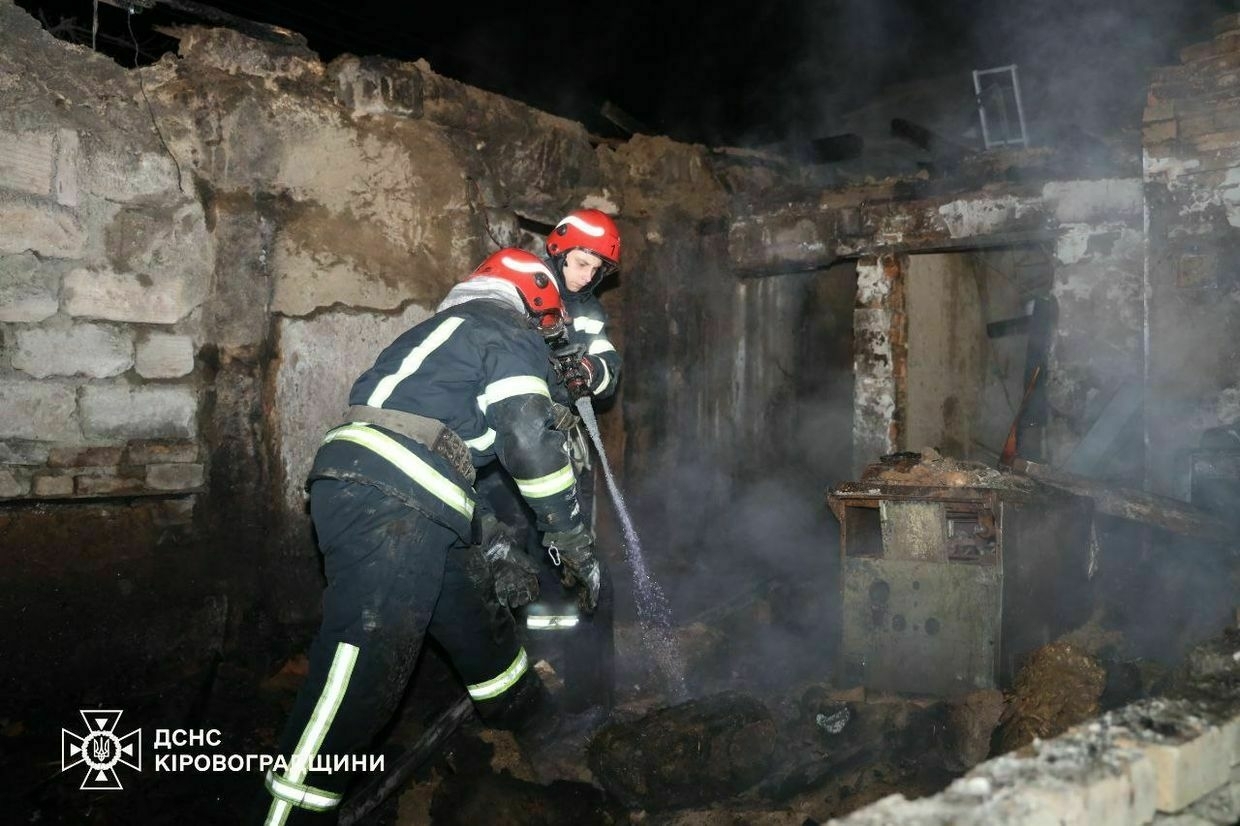
Ukraine, US to hold talks in Saudi Arabia on March 24Ukrainian and American delegations are planning to hold a new round of talks in Saudi Arabia on March 24 to discuss steps toward a ceasefire with Russia, President Volodymyr Zelensky said on March 20.
A U.S. delegation is also expected to meet with Russian representatives in Riyadh on the same day, March 24. These will be two separate meetings that will either happen simultaneously or one after another, Zelensky clarified during a press conference with Norwegian Prime Minister Jonas Gahr Store.
According to Zelensky, Kyiv was ready for a U.S.-proposed 30-day ceasefire — in the sky, at sea, and on the ground — but is ready “to take a step back” and talk about a partial ceasefire given Moscow’s rejection of the complete ceasefire.
A ceasefire to ensure the security of the energy system of both countries means no attacks on energy infrastructure and civilian infrastructure, according to Zelensky.
The Ukrainian leader told Trump that Kyiv would prepare a list of civilian infrastructure facilities that should be part of the agreement.
“I don’t want there to be a different understanding of what the parties will agree on,” he said.
Putin’s ‘ceasefire’ — Is Russia still bombing Ukraine? YesThe Kremlin on March 18 announced it had agreed to a U.S.-proposed partial ceasefire against certain targets in Ukraine, claiming Russian President Vladimir Putin had “responded favorably to the proposal and immediately” ordered his armed forces to halt attacks. Despite the announcement — made afte…The Kyiv IndependentChris York
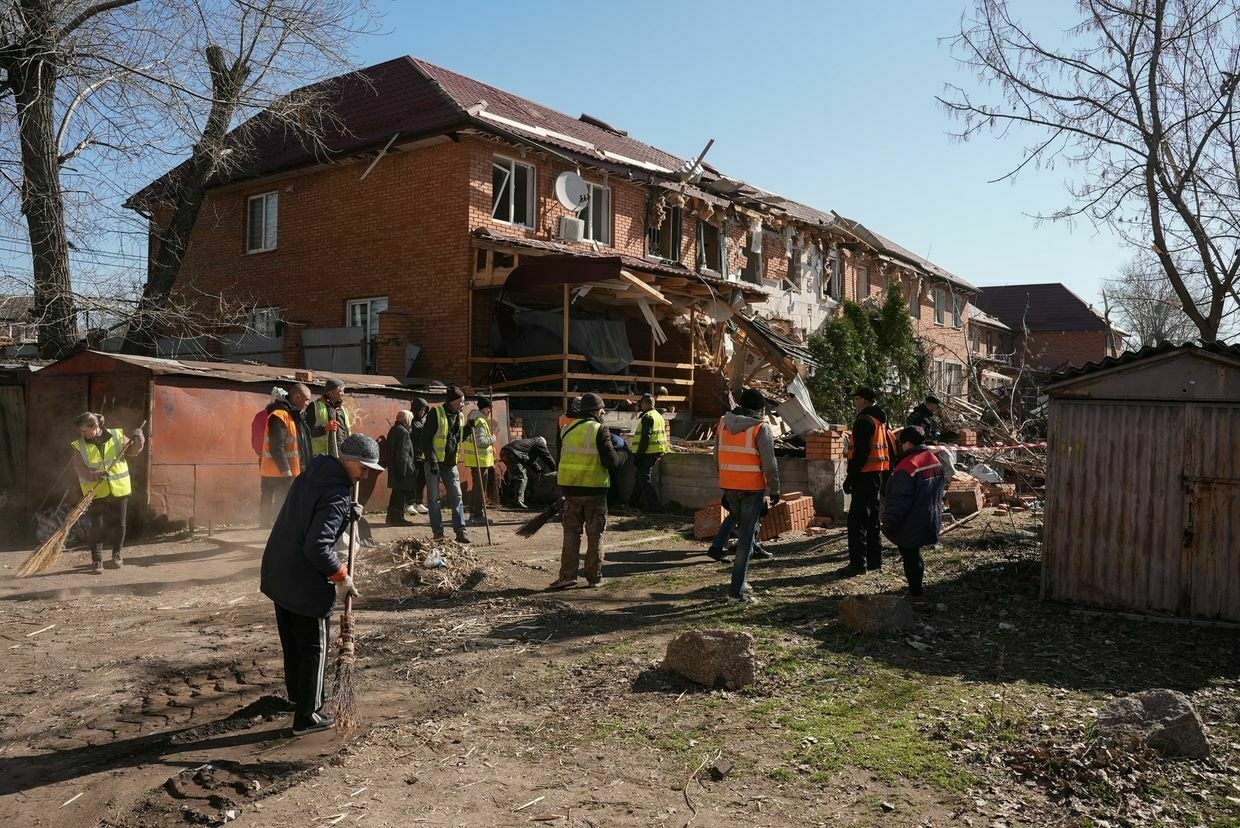
Putin orders Ukrainians ‘without legal status’ to leave Russia, occupied territories by Sept. 10Ukrainian citizens residing in Russia and Russian-occupied territories of Ukraine must leave by Sept. 10 or “regulate their legal status,” according to an official decree signed by Russian President Vladimir Putin and published on March 20.
“Citizens of Ukraine who are in the Russian Federation and do not have legal grounds for staying (residing) in the Russian Federation are required to leave the Russian Federation on their own or regulate their legal status in the Russian Federation by Sept. 10, 2025,” the decree reads.
Russia illegally declared annexation of fully occupied Crimea and invaded the east of Ukraine in 2014. In 2022, Moscow partially occupied Donetsk, Luhansk, Kherson, and Zaporizhzhia oblasts, de facto treating Ukrainian sovereign territory as its own regions.
The decree comes amid Moscow’s efforts to Russify the conquered territories by pressuring Ukrainian citizens into accepting Russian passports or forcing them out while trying to attract Russian citizens to move in.
The document says the order will not concern Ukrainian citizens who will register their status with the Russian Interior Ministry by Sept. 10.
The decree further ordered all “foreign citizens and stateless persons” residing in the occupied parts of Donetsk, Luhansk, Kherson, and Zaporizhzhia oblasts to undergo medical checks on drug use and infectious diseases by June 10.
Putin’s ‘ceasefire’ — Is Russia still bombing Ukraine?The Kremlin on March 18 announced it had agreed to a U.S.-proposed partial ceasefire against certain targets in Ukraine, claiming Russian President Vladimir Putin had “responded favorably to the proposal and immediately” ordered his armed forces to halt attacks. Despite the announcement — made afte…The Kyiv IndependentChris York

$5.4 billion on ammunition for Ukraine ‘realistic’ goal, EU’s top diplomat saysThe EU is working on providing Ukraine with 5 billion euros ($5.4 billion) for ammunition, top EU diplomat Kaja Kallas said on March 20, as a much larger 40-billion-euro ($43 billion) package still lacks consensus.
Speaking to journalists ahead of an EU summit in Brussels, Kallas called the 5-billion-euro tranche a “realistic plan” that is currently under discussion.
Despite Kallas saying earlier this week that the tranche of 40 billion euros has “broad political support” among EU members, some countries, such as Italy, France, or Spain, remain hesitant.
Additional European assistance is ever more crucial for Kyiv now as future support from the U.S., the leading military donor, grows increasingly uncertain under President Donald Trump.
The sum of 5 billion euros for purchasing 2 million large-caliber ammunition rounds is seen as a first step that could be achieved before a possible consensus on the more significant tranche.
EU officials have been discussing ways to move the bigger package forward, including basing contributions on consent to avoid a likely veto by Hungary, the bloc’s most Russian-friendly country.
The contributions are to be based on each member state’s gross national income (GNI), which has also become a key sticking point in the discussions.
“Some countries have done more, and some countries are bigger economies,” Kallas said.
EU should keep frozen Russian assets until reparations paid even if US returns funds, commissioner says“G7 decision that those assets are not going back to Russia unless Russia pays for its damages is something which is already decided. And it’s important to stick with this decision,” EU Economy and Trade Commissioner Valdis Dombrovskis said.The Kyiv IndependentDominic Culverwell
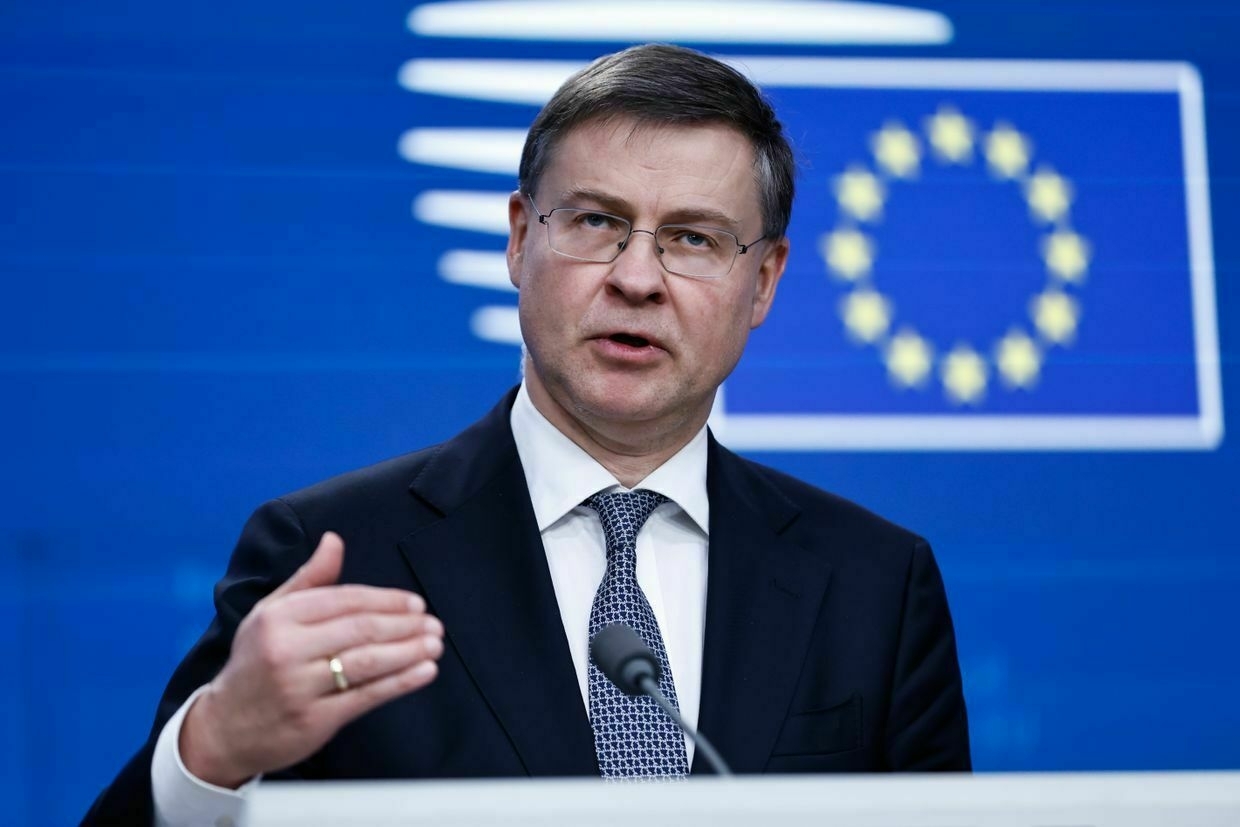
Ukraine ‘destroys’ Russian command post in Belgorod Oblast, military claimsUkrainian troops “destroyed” a command post of the Third Motor Rifle Division of the 20th Army of the Russian Armed Forces near the village of Demidovka in Russia’s Belgorod Oblast on March 18, Ukraine’s General Staff reported on March 20.
The news comes days after Moscow claimed that Ukrainian troops allegedly launched an offensive on Belgorod Oblast. Russian reports emerged on March 18 ahead of the phone call between Russian President Vladimir Putin and U.S. President Donald Trump.
Andrii Kovalenko, the head of the counter-disinformation department at Ukraine’s National Security and Defense Council, rejected Russia’s claims, while President Volodymyr Zelensky neither confirmed nor denied Ukrainian operations in Belgorod Oblast.
According to the Ukrainian military, Russia used the command post to plan and conduct combat operations against Ukrainian soldiers in Sumy Oblast.
Sumy Oblast borders Russia’s Bryansk, Kursk, and Belgorod oblasts. Amid Russia’s breakthrough in embattled Kursk Oblast, Zelensky said on March 15 that Russian soldiers were amassing at the border to prepare to launch an attack on Ukraine’s northeastern region.
Demidovka lies around five kilometers (three miles) east of the Ukrainian border.
“Its (command post’s) elimination significantly reduces the ability of the units of the Third Motor Rifle Division of the Russian Federation to operate effectively on the battlefield,” the statement read.
The Kyiv Independent could not verify these claims.
“We have seen a new concentration of troops on the border with Sumy Oblast. We can see what they want to do — they want to strike Sumy, Kharkiv, and Zaporizhzhia oblasts,” Zelensky said on March 18 when asked about alleged Ukraine’s offensive on Belgorod Oblast. “We will not let them do it so easily."
Belgorod Oblast is regularly used by Russia to launch strikes against Ukrainian territory. At the same time, Belgorod Oblast authorities have repeatedly accused Ukraine of launching attacks against the region and Belgorod city throughout the full-scale war.
Recently, multiple clashes have been reported in the region amid Ukraine’s ongoing cross-border incursion focused on neighboring Kursk Oblast.
Note from the author:
Ukraine War Latest is put together by the Kyiv Independent news desk team, who keep you informed 24 hours a day, seven days a week. If you value our work and want to ensure we have the resources to continue, join the Kyiv Independent community.